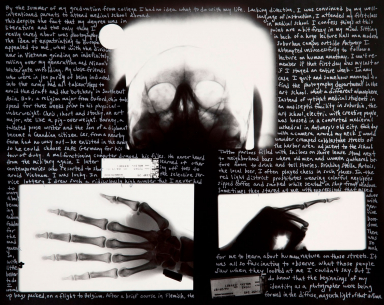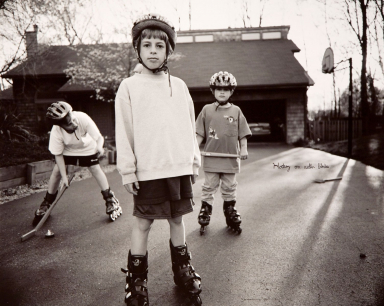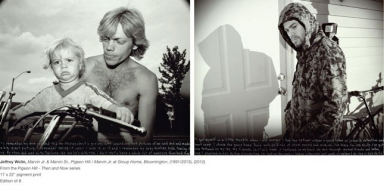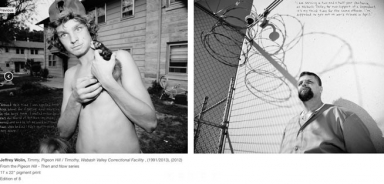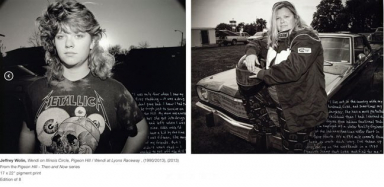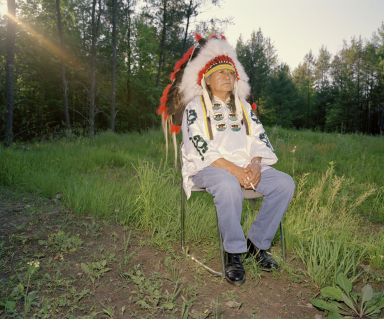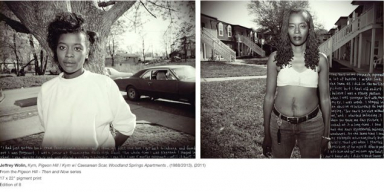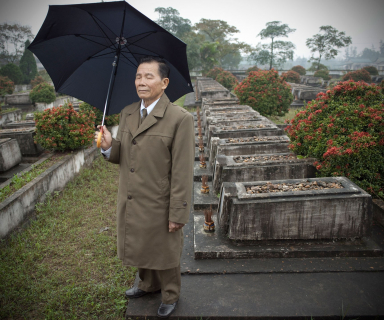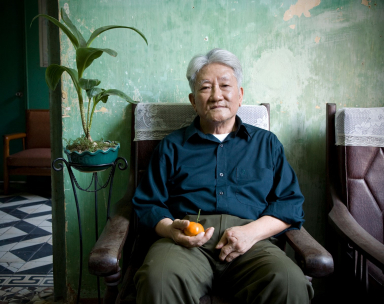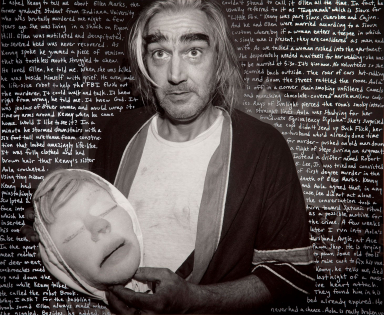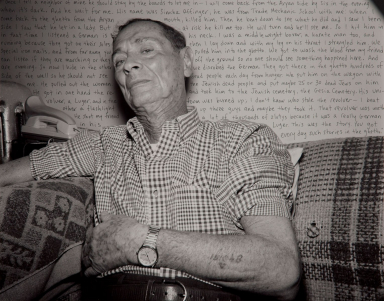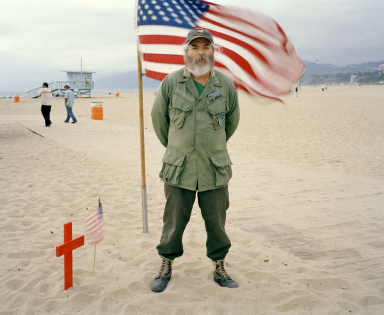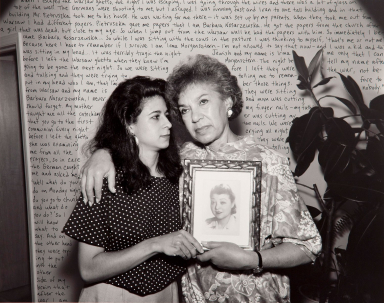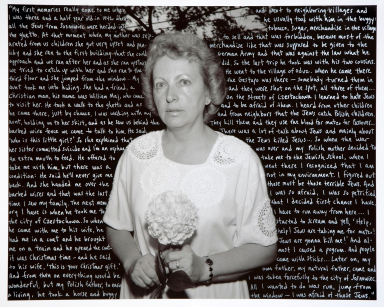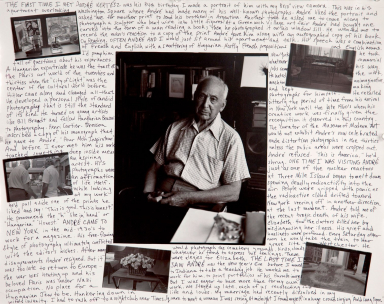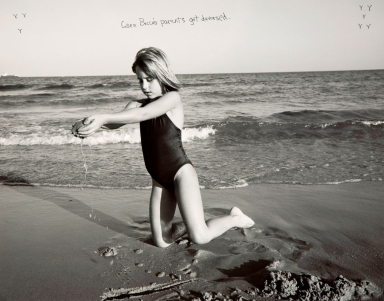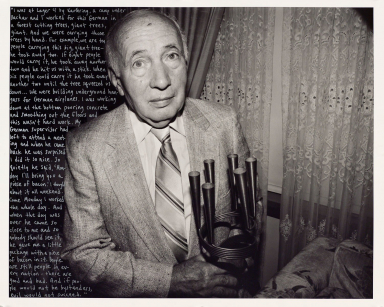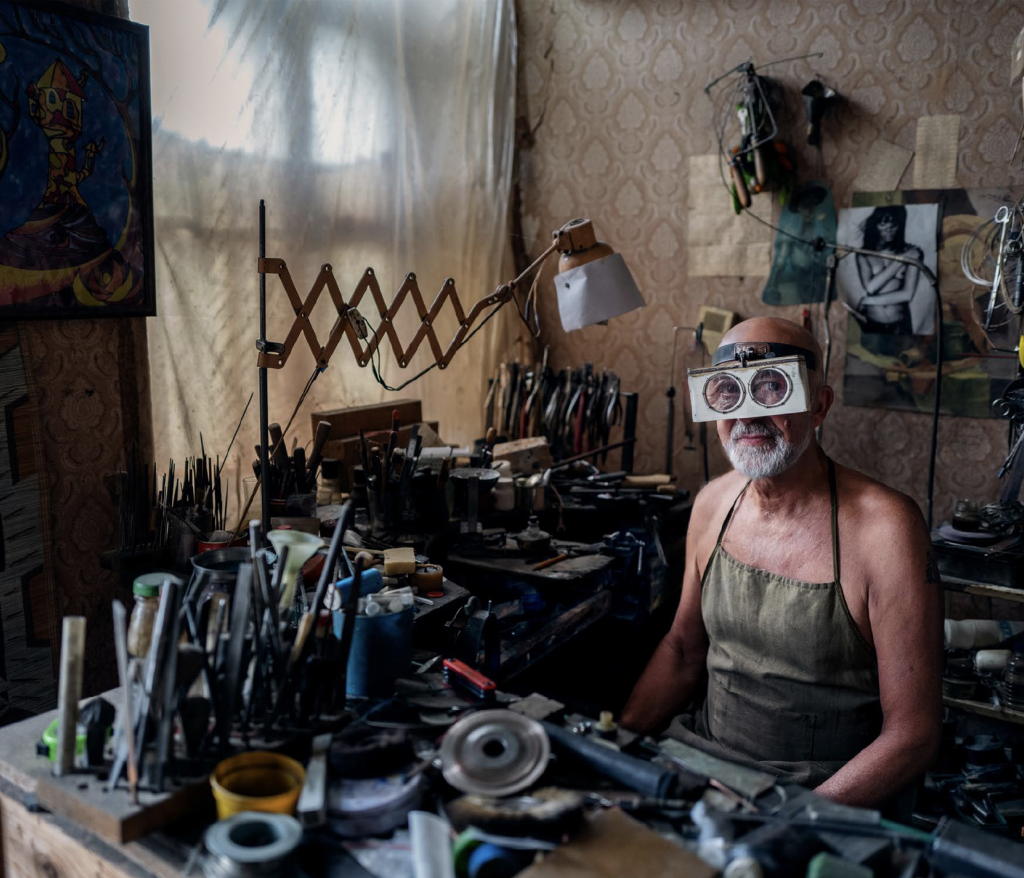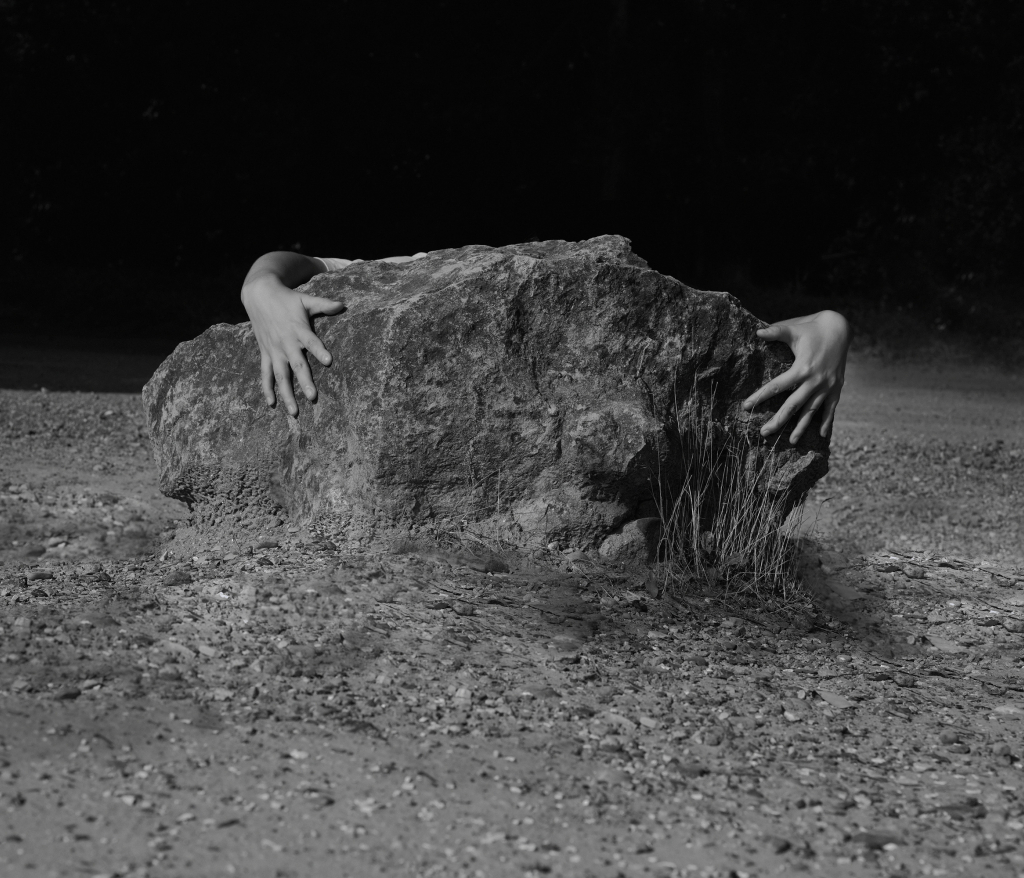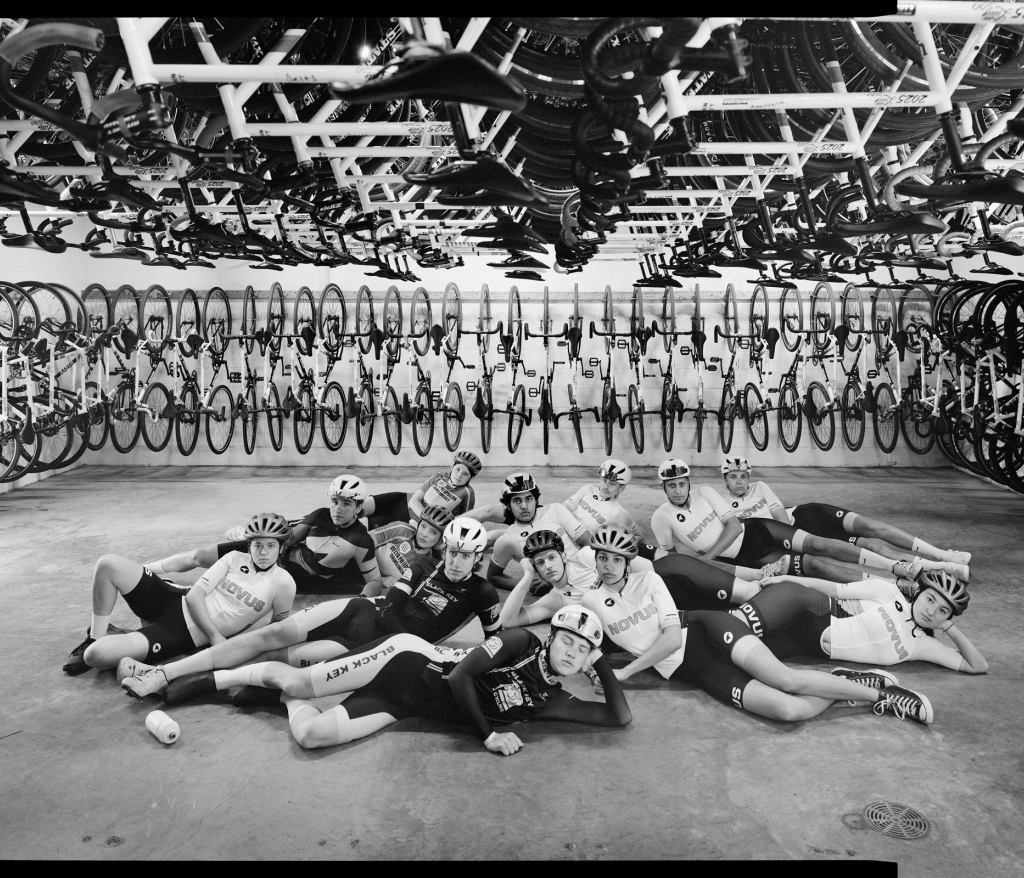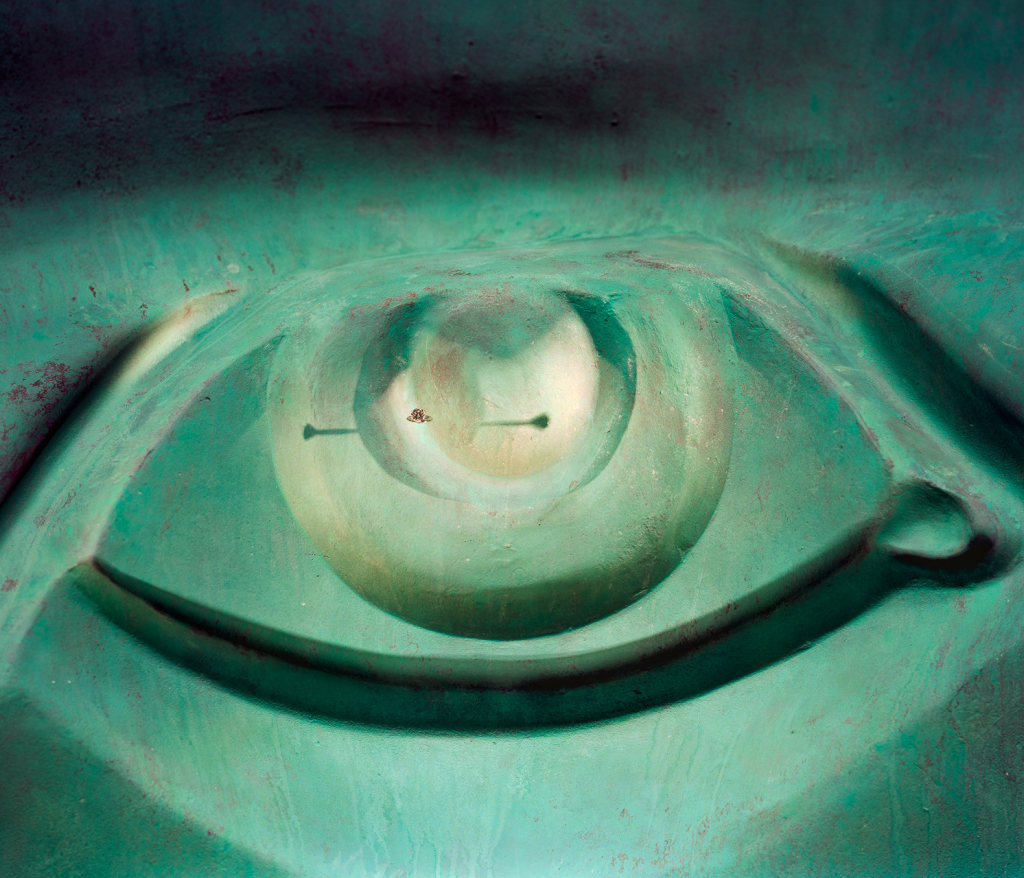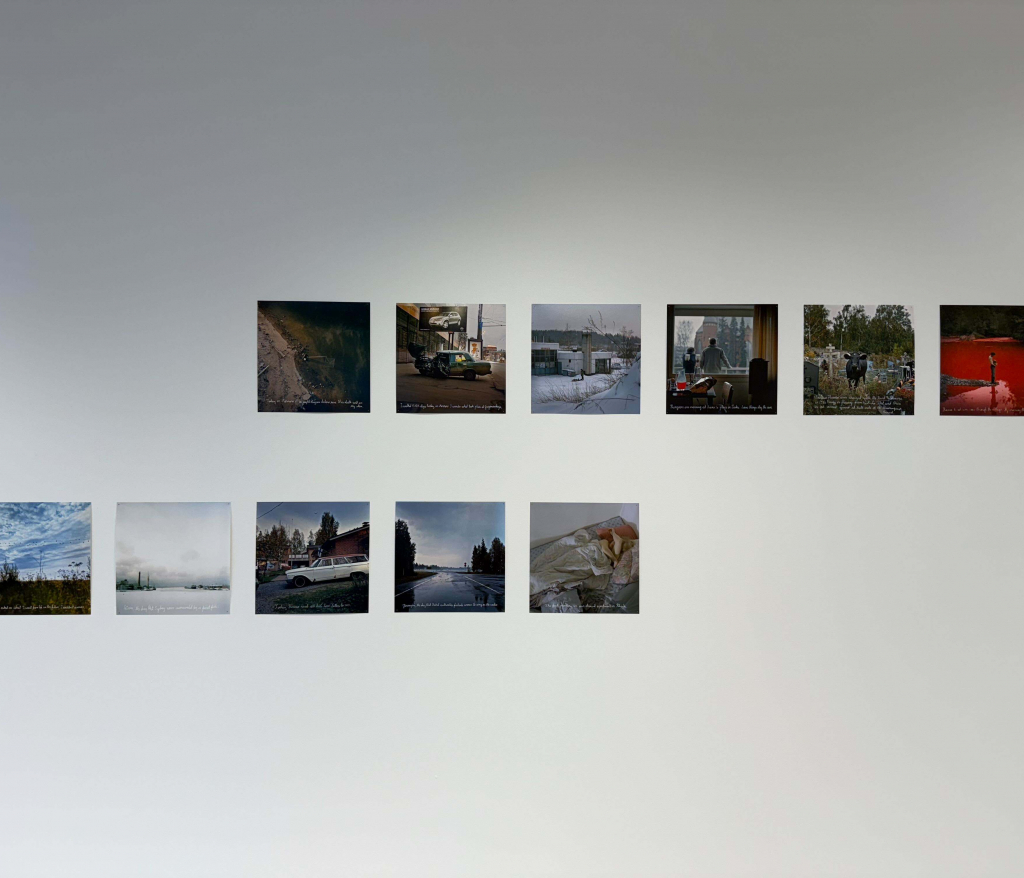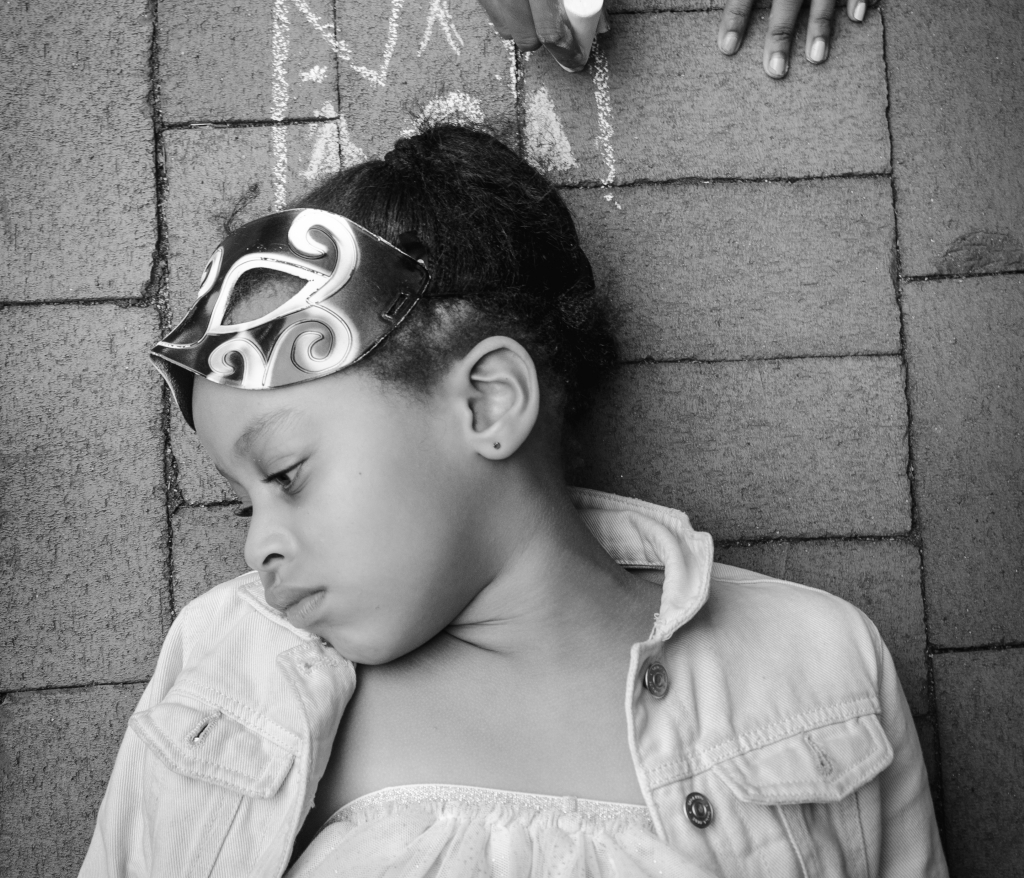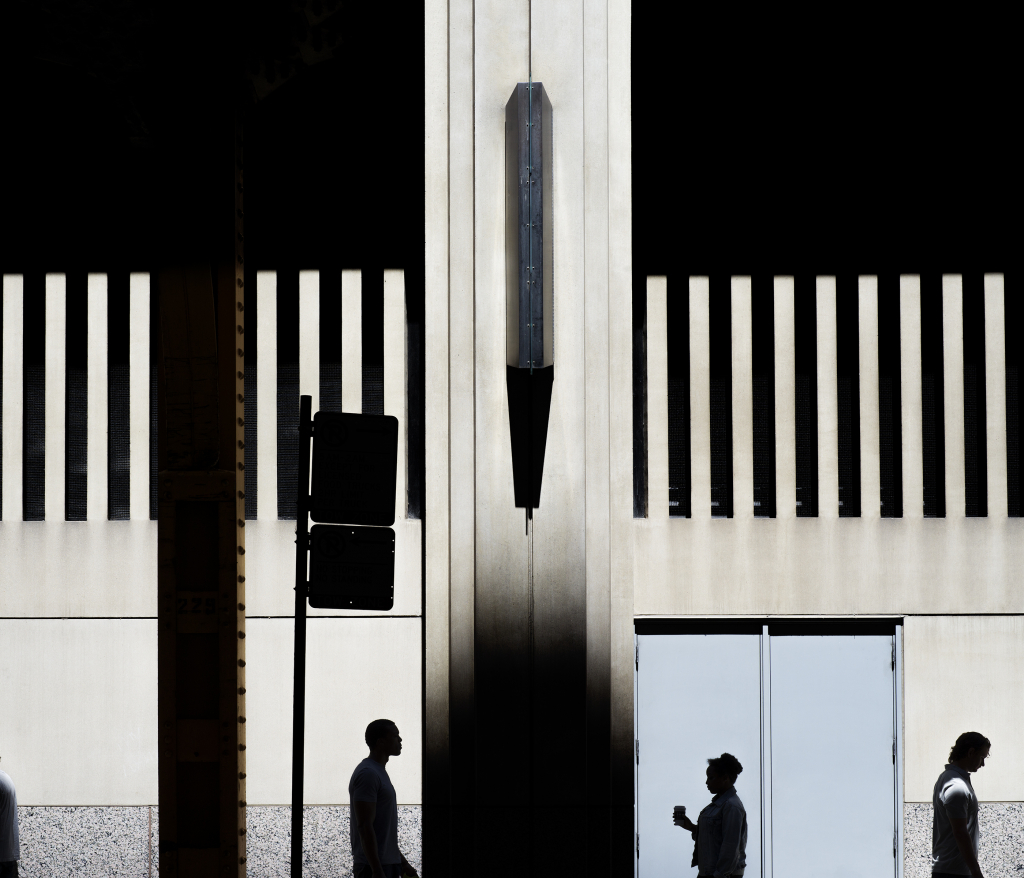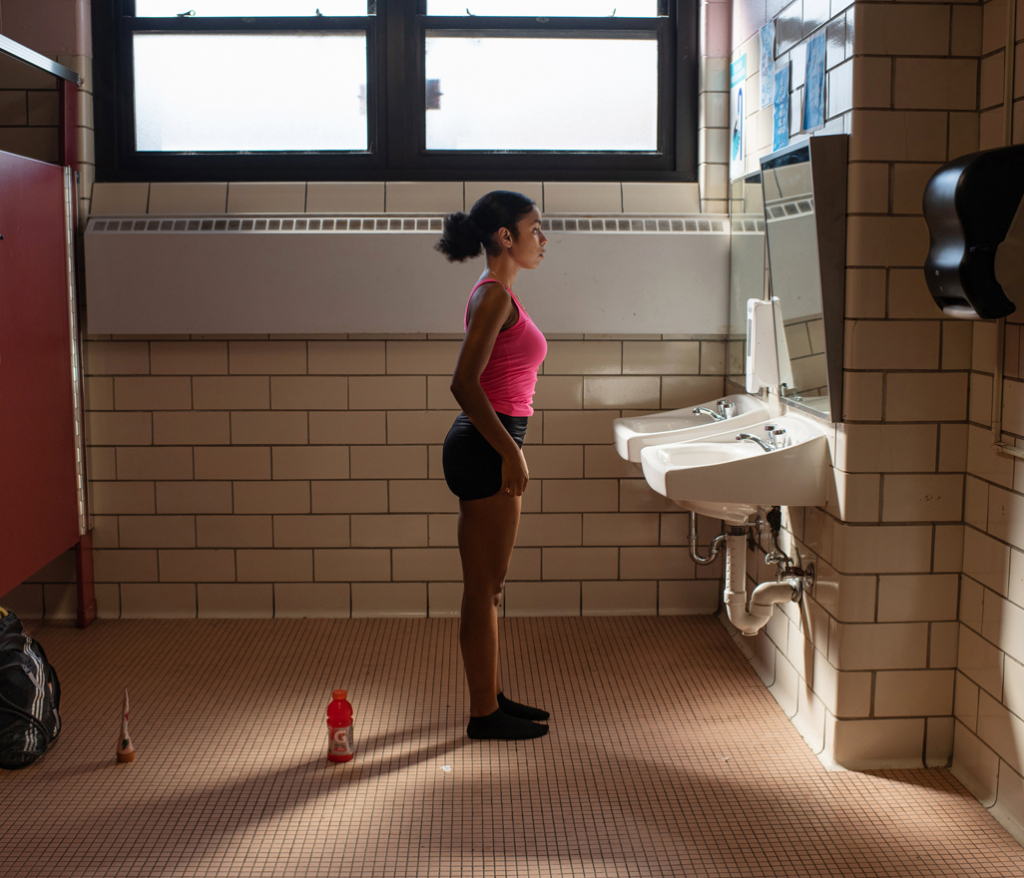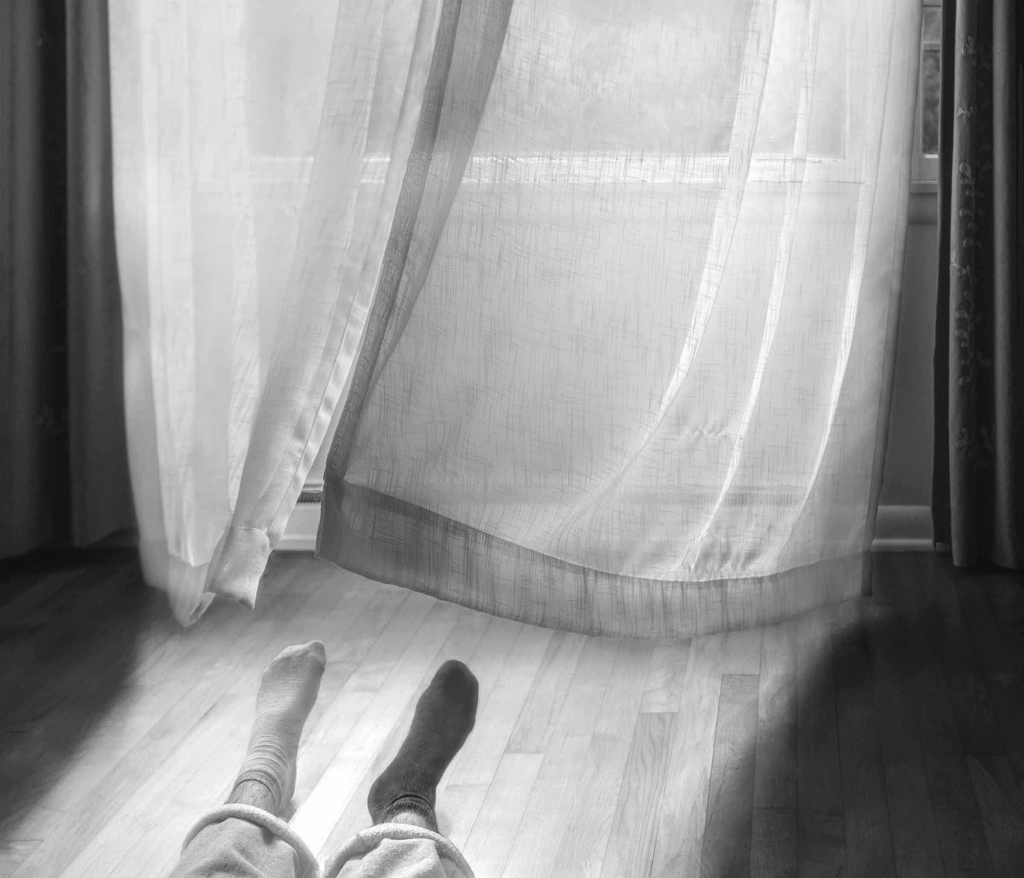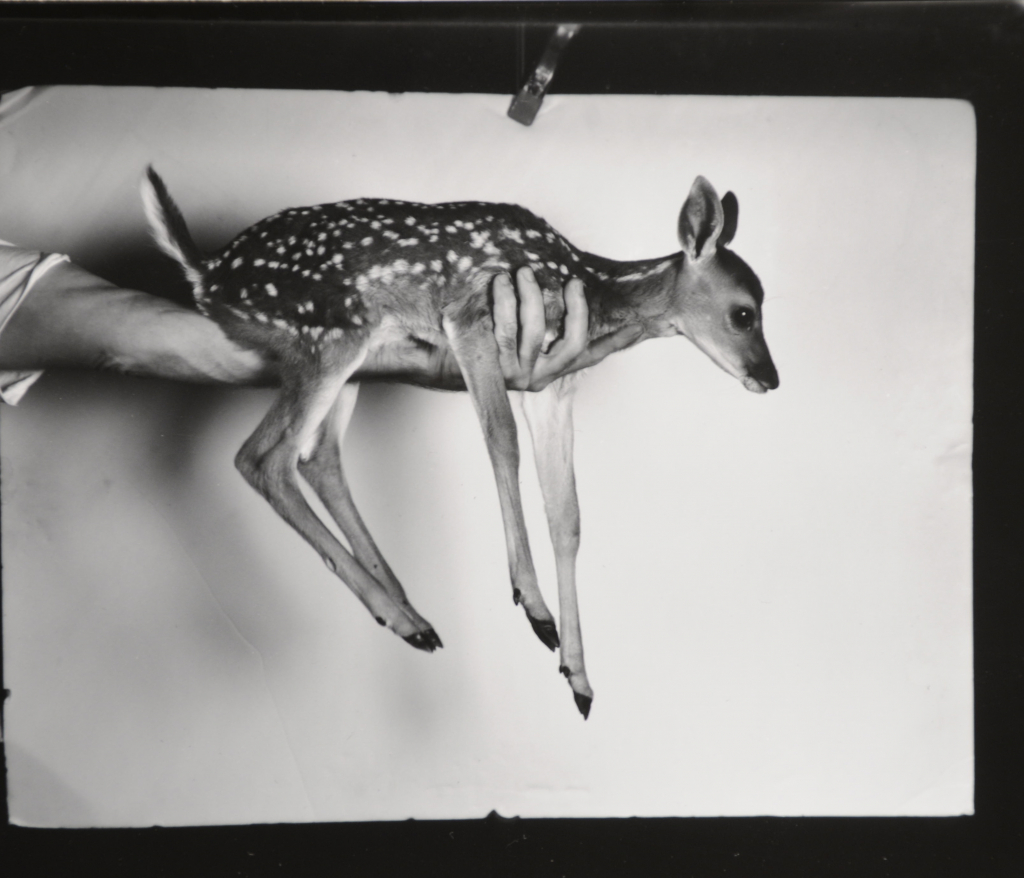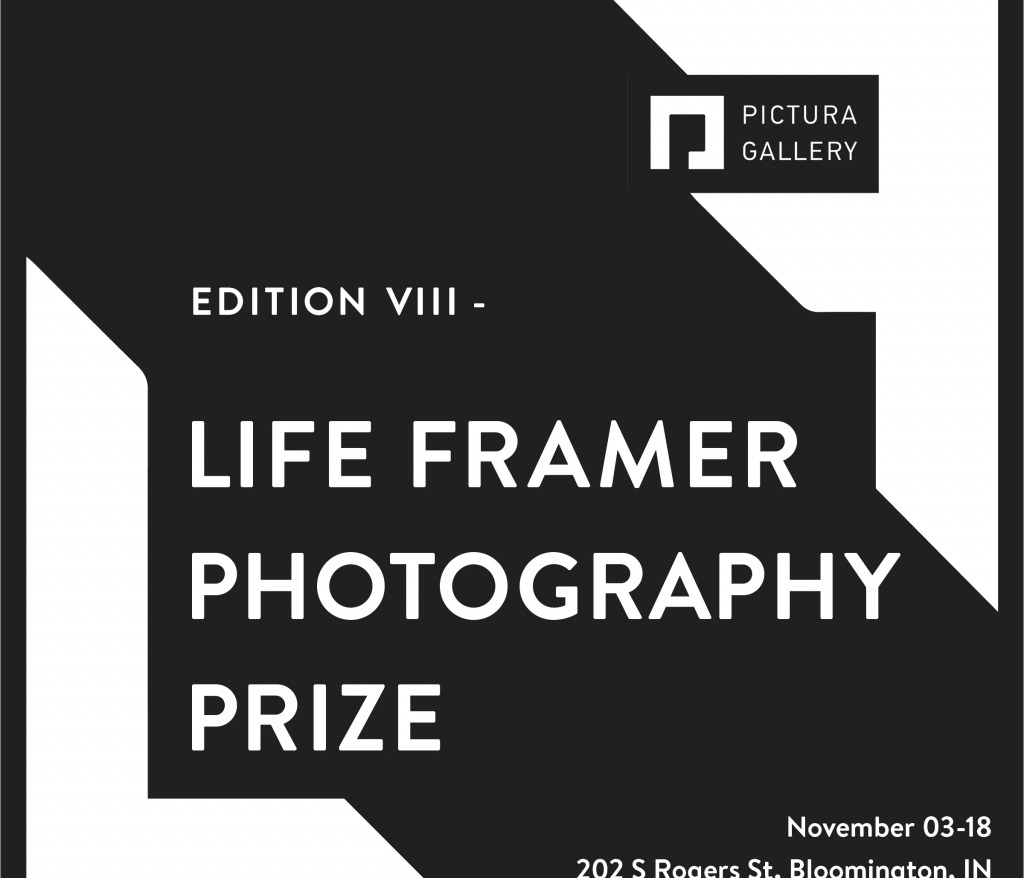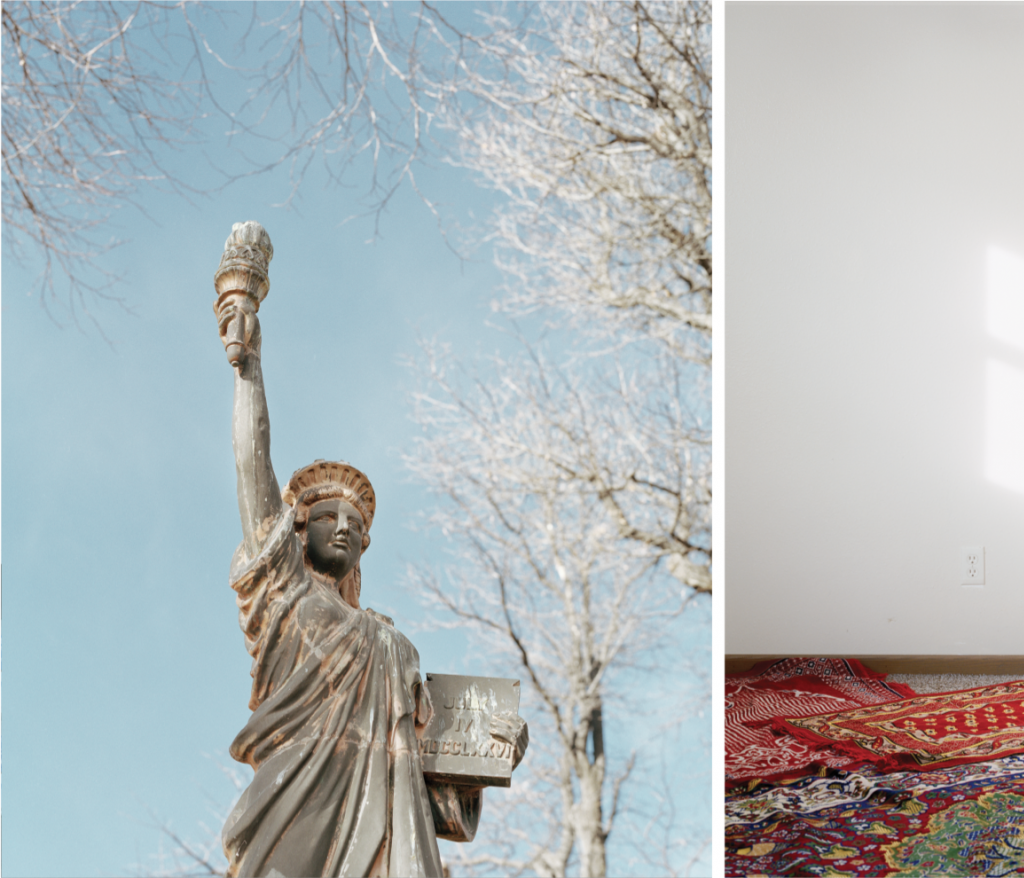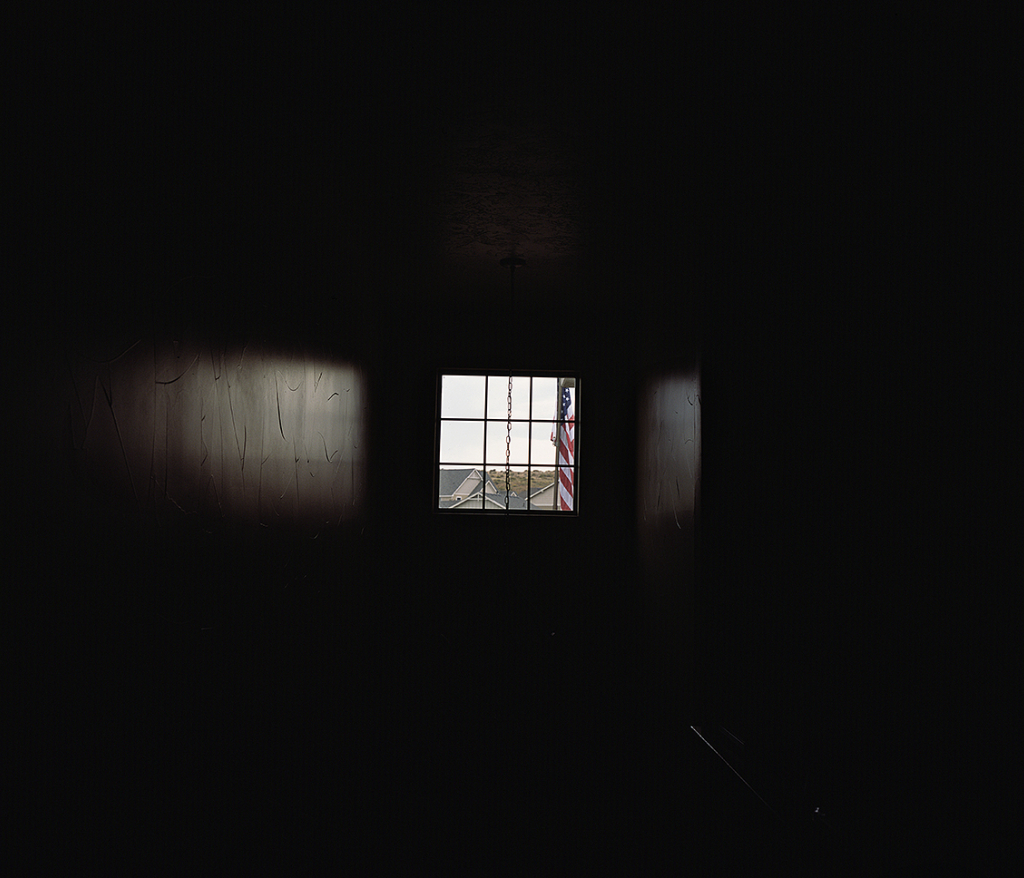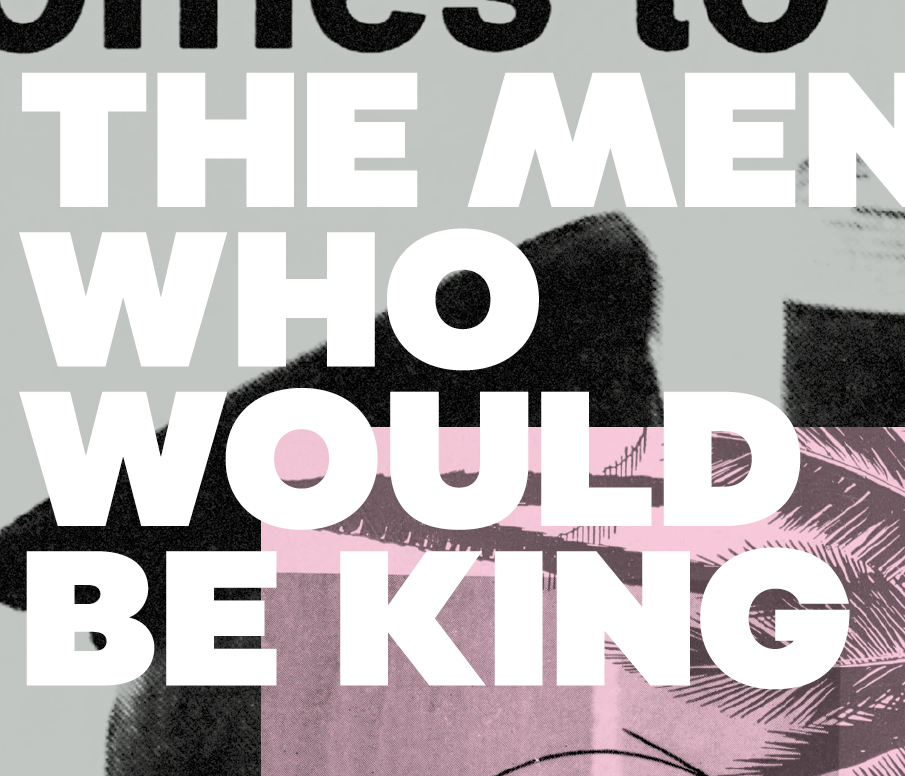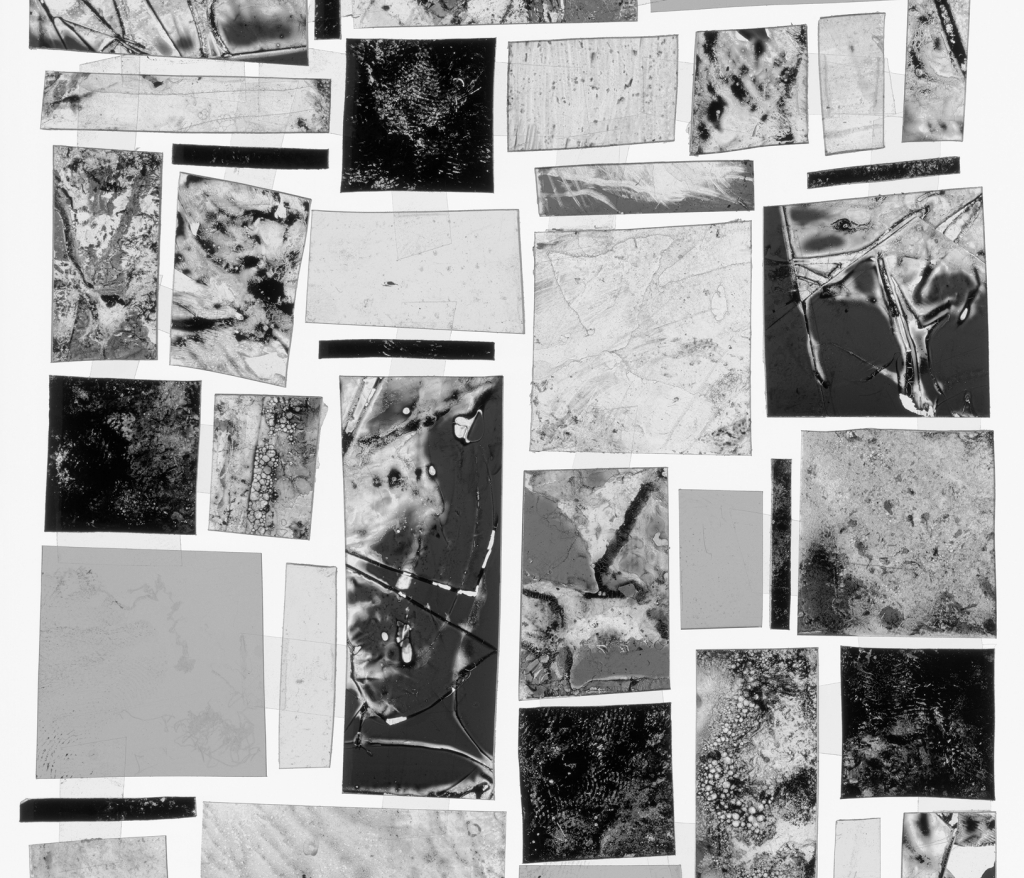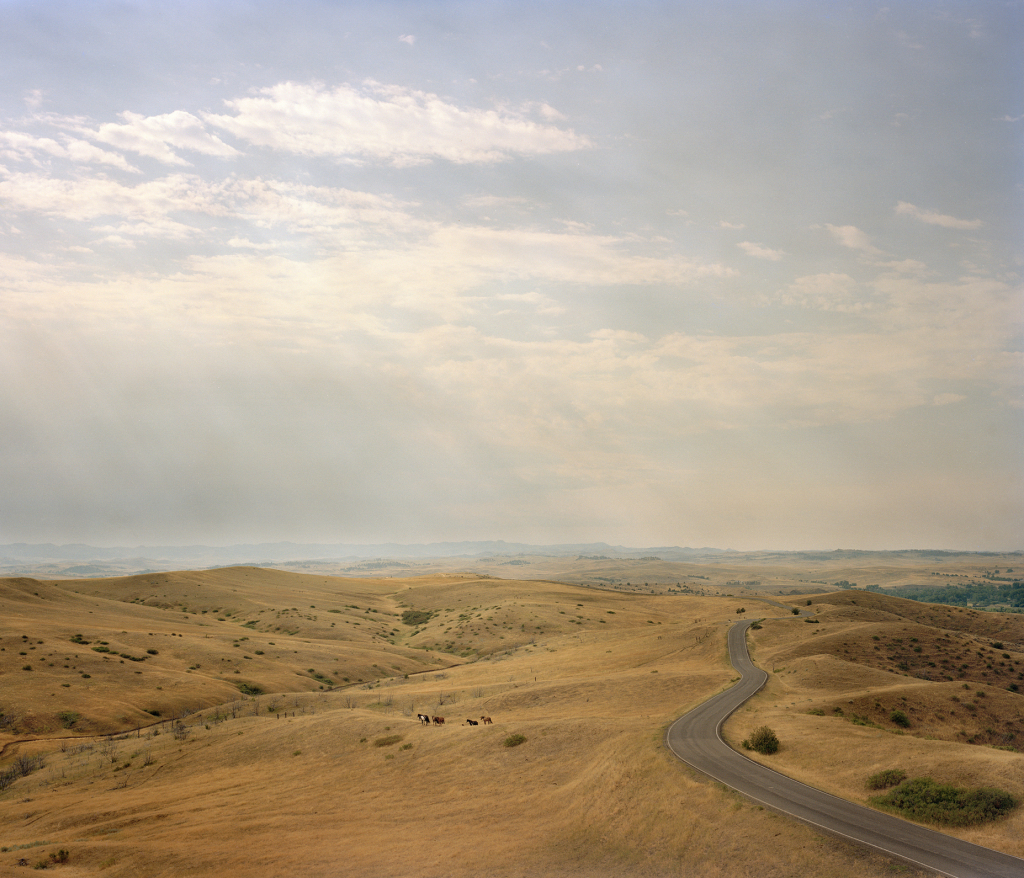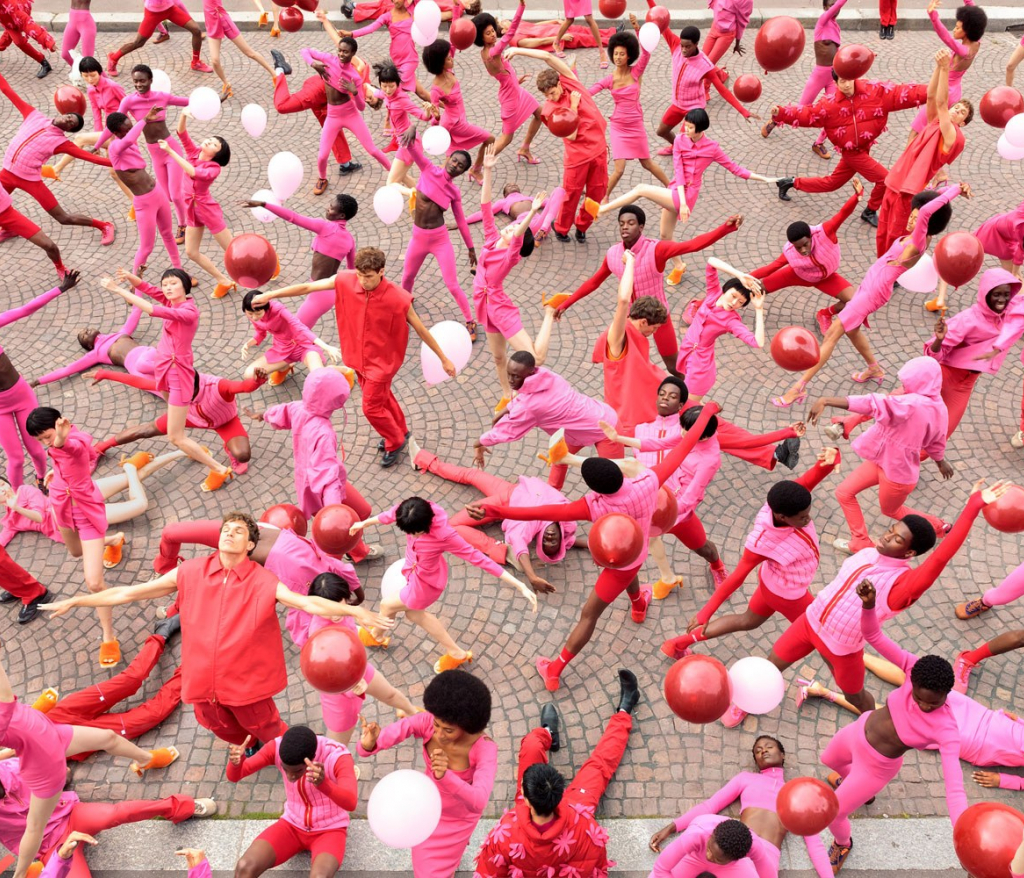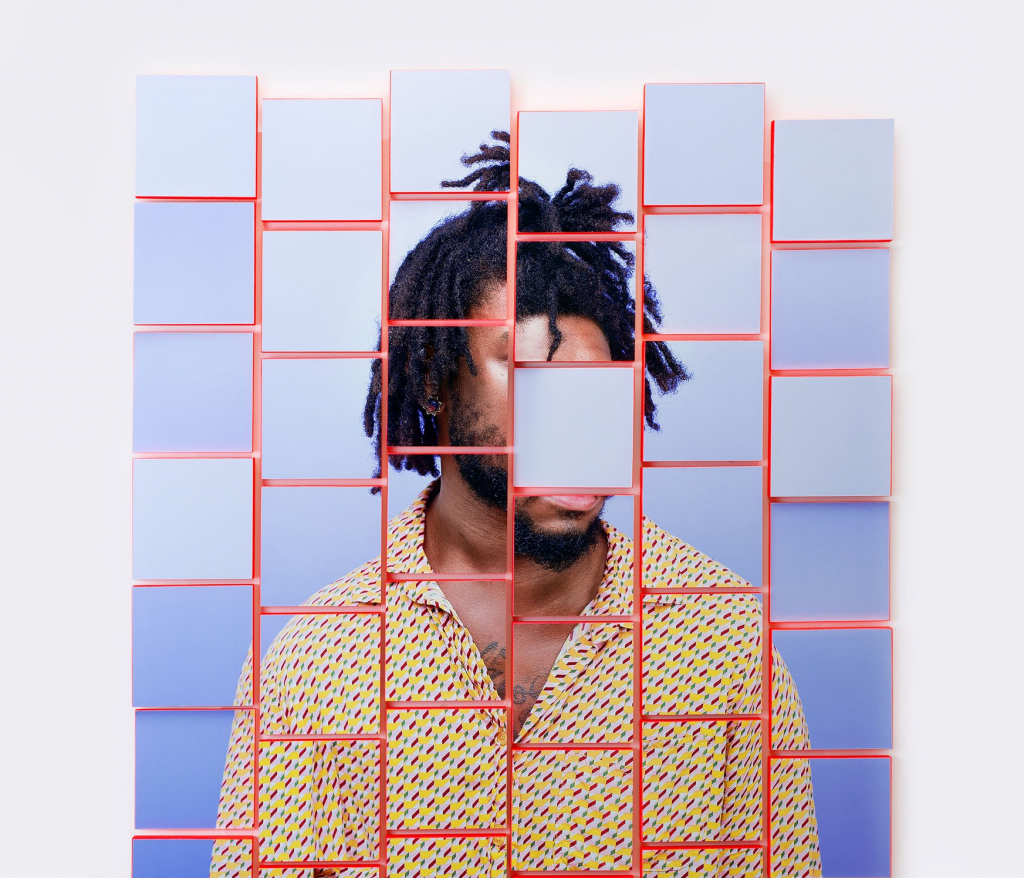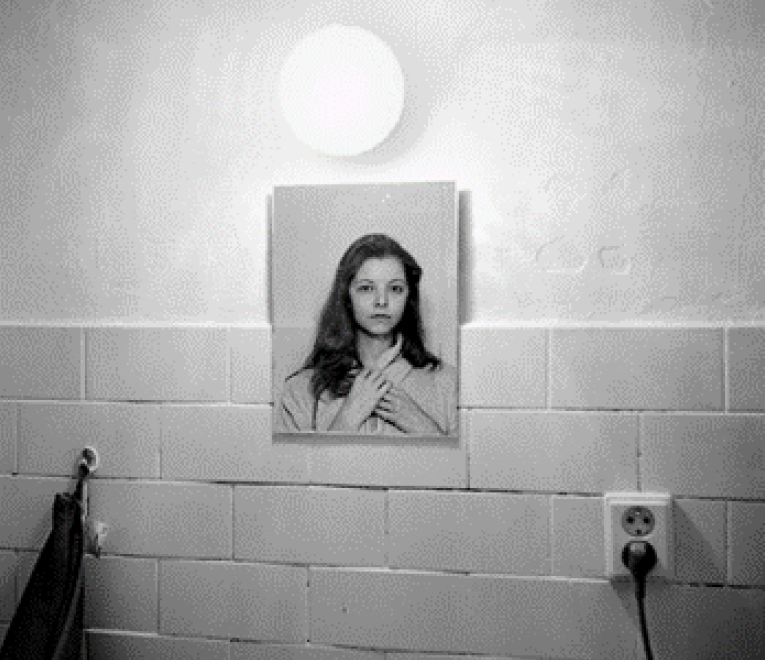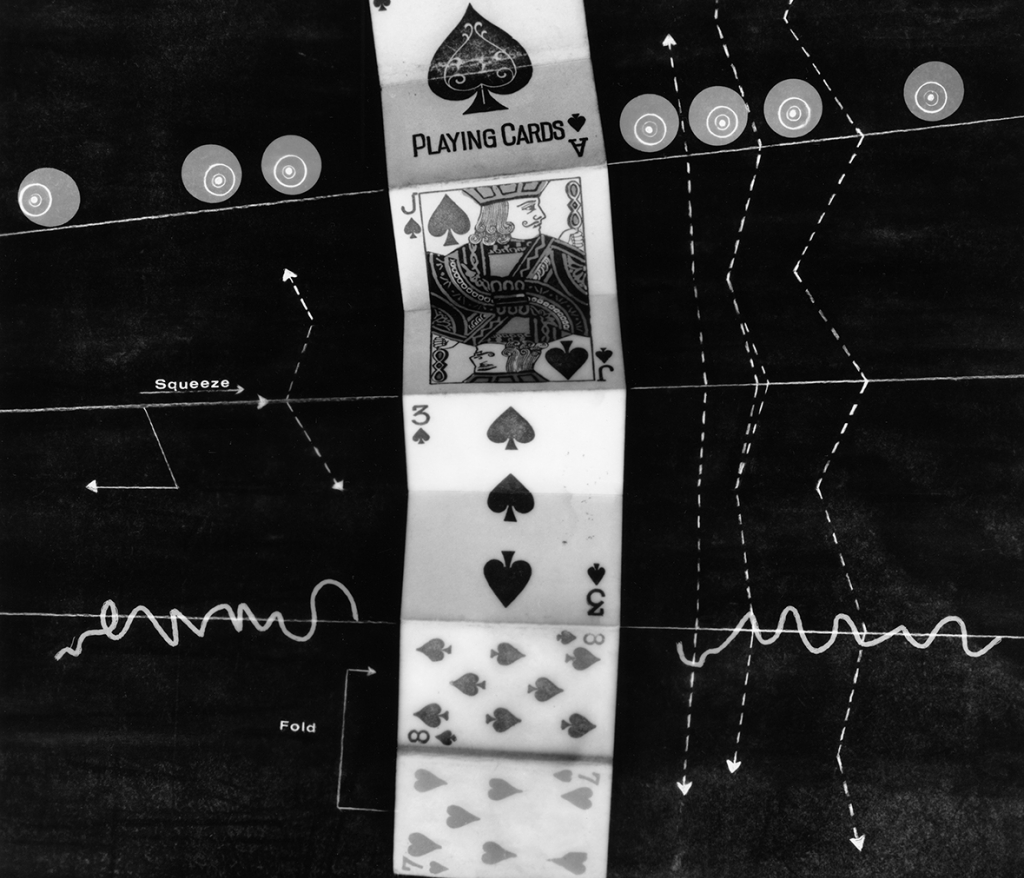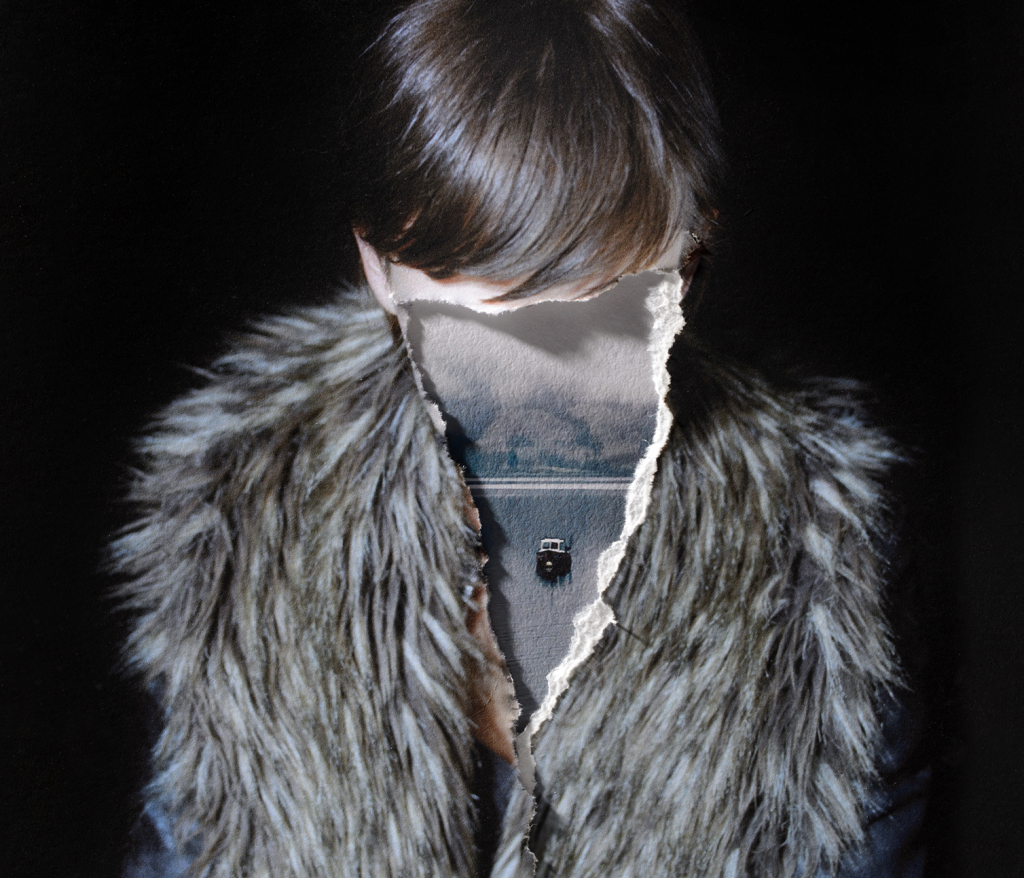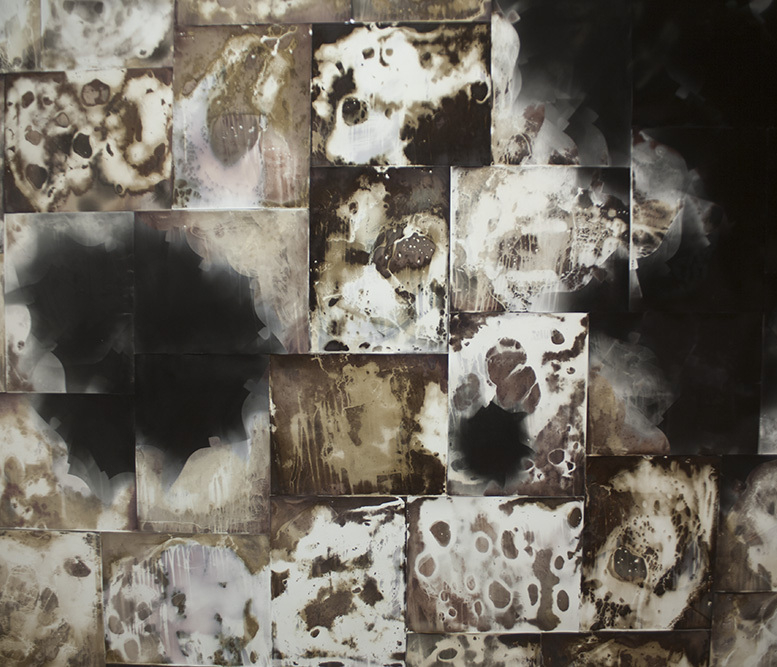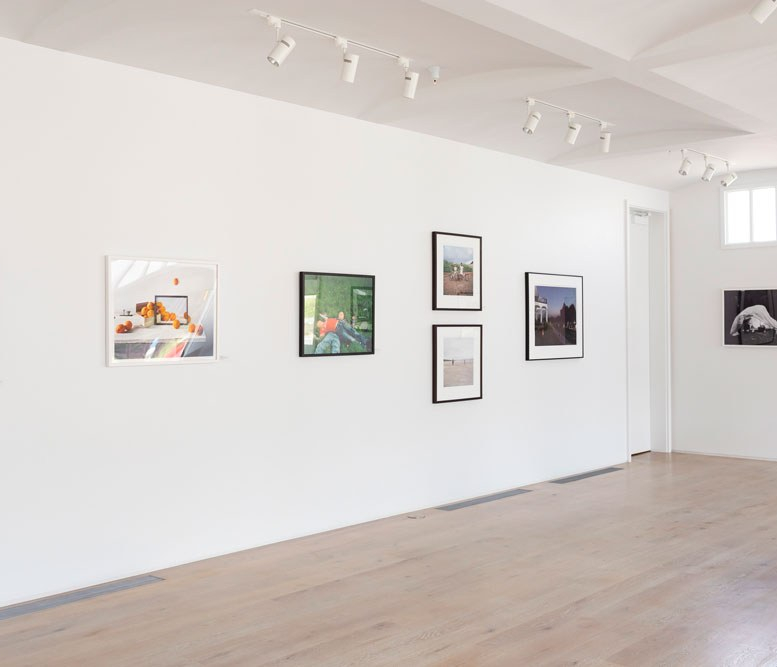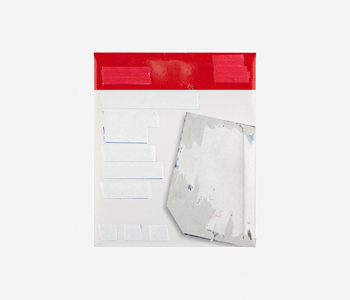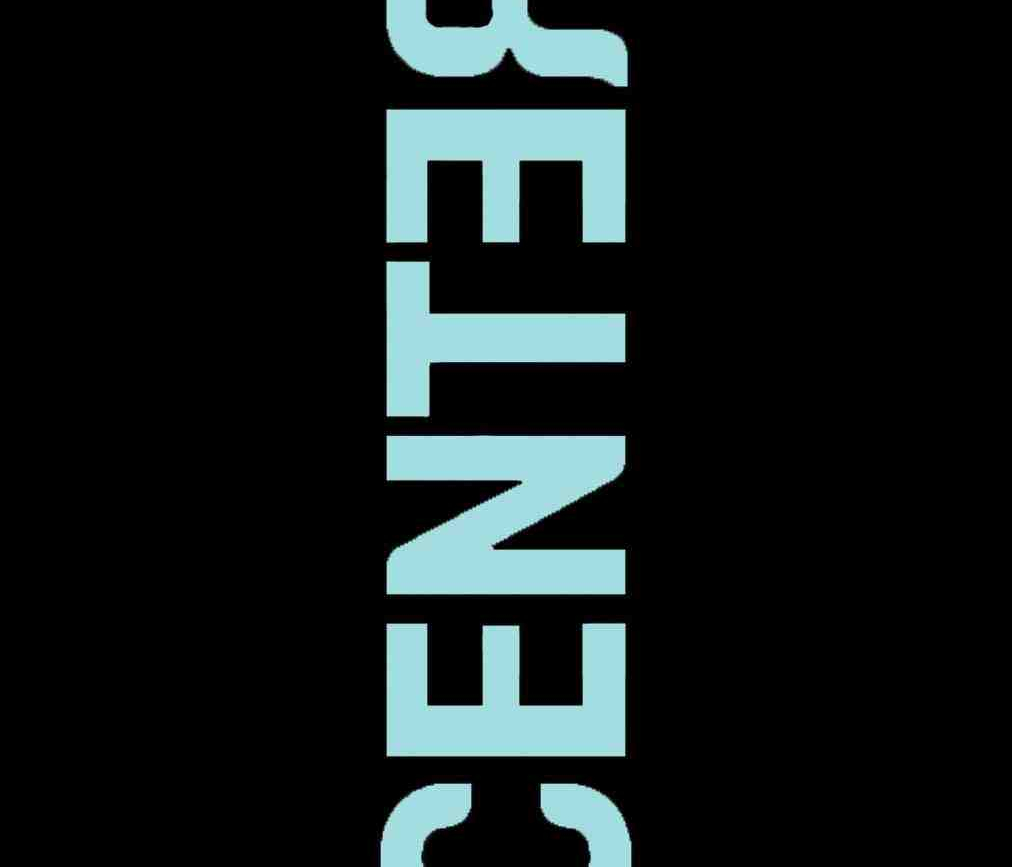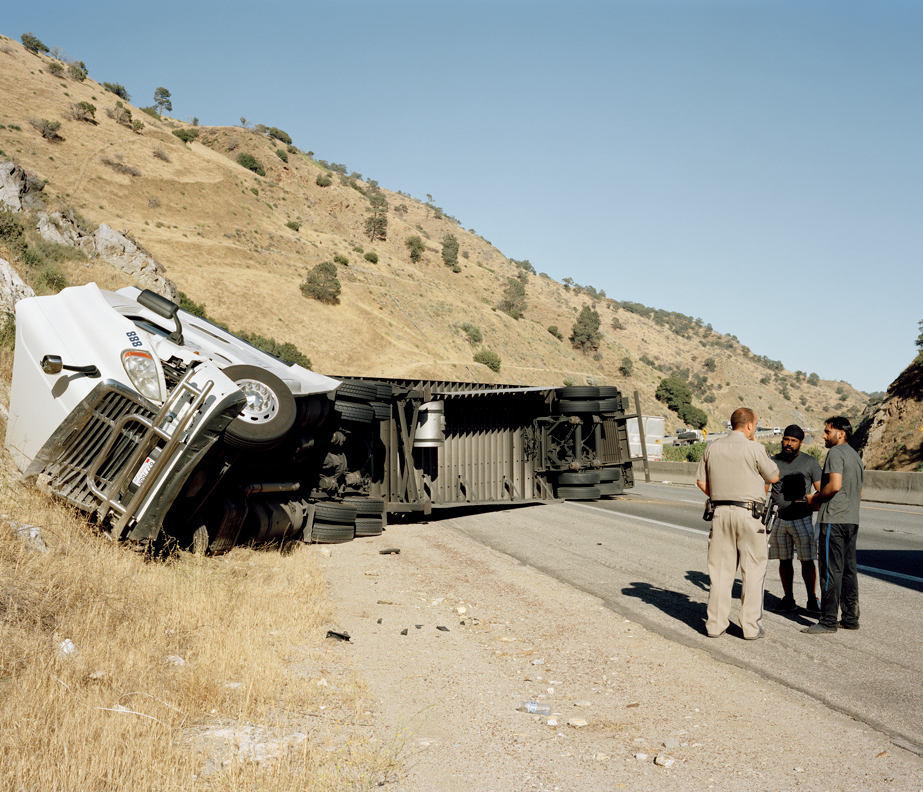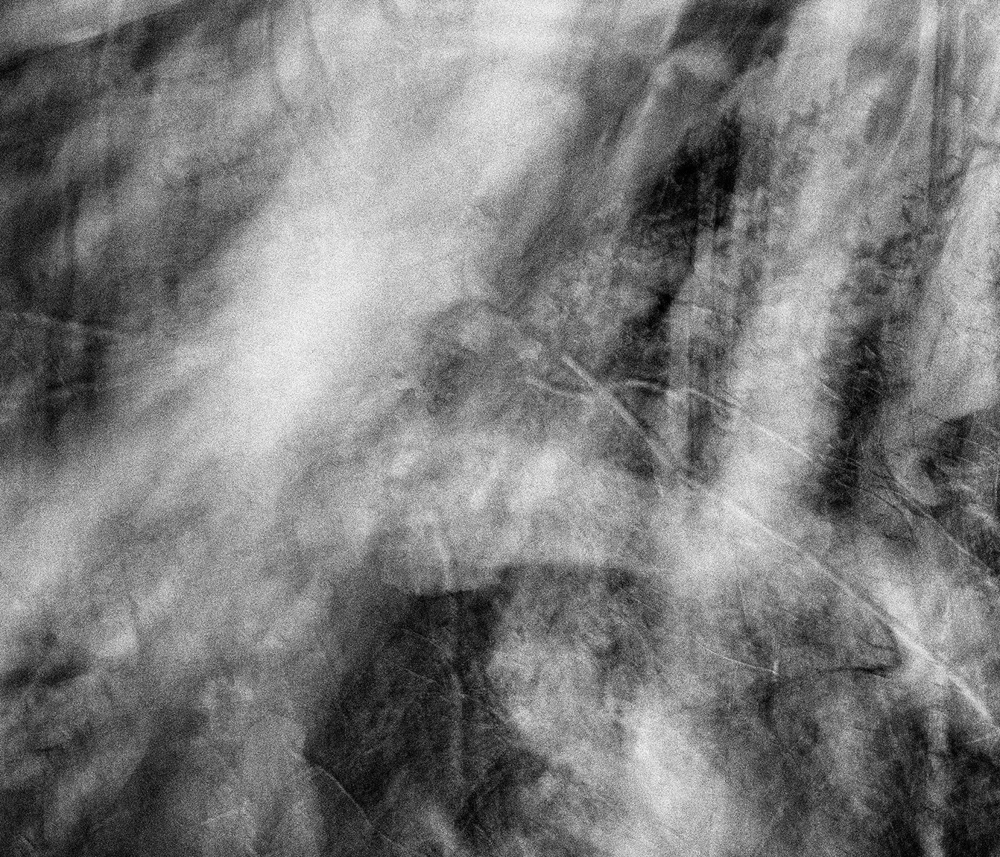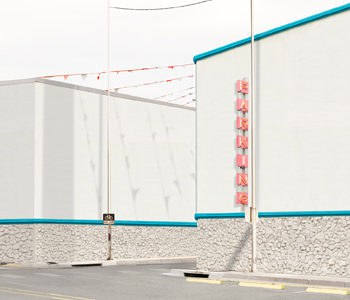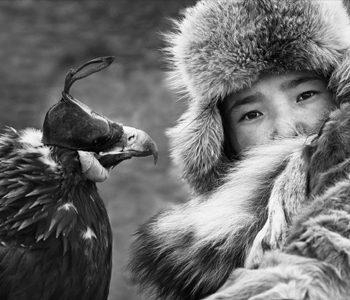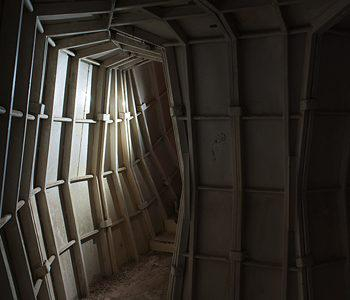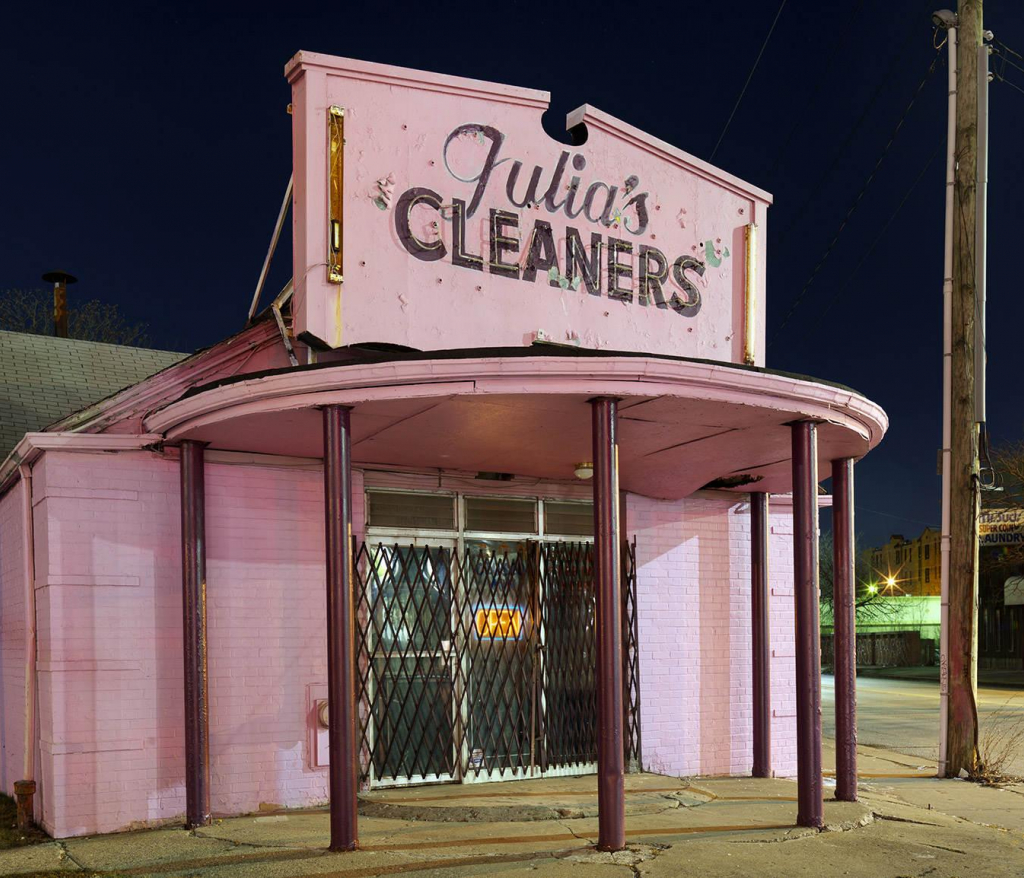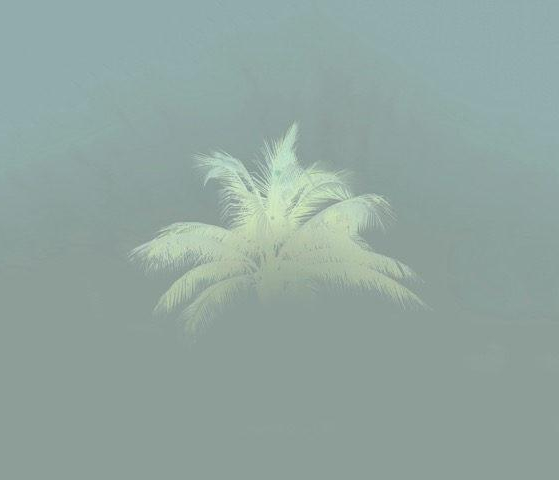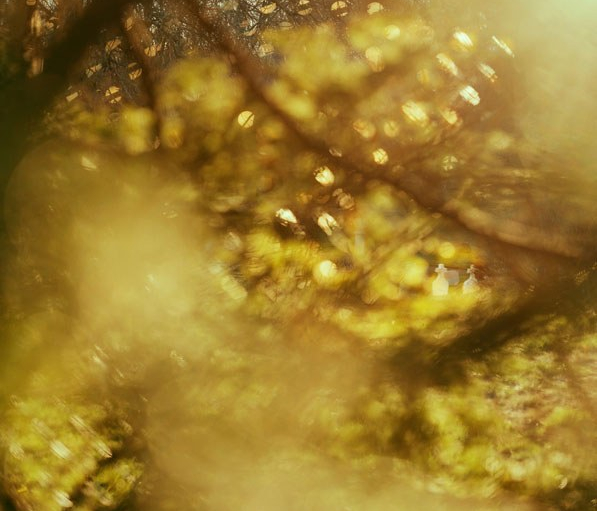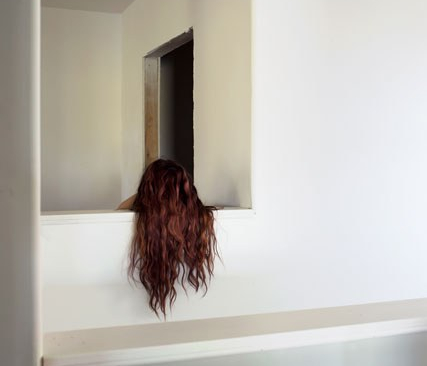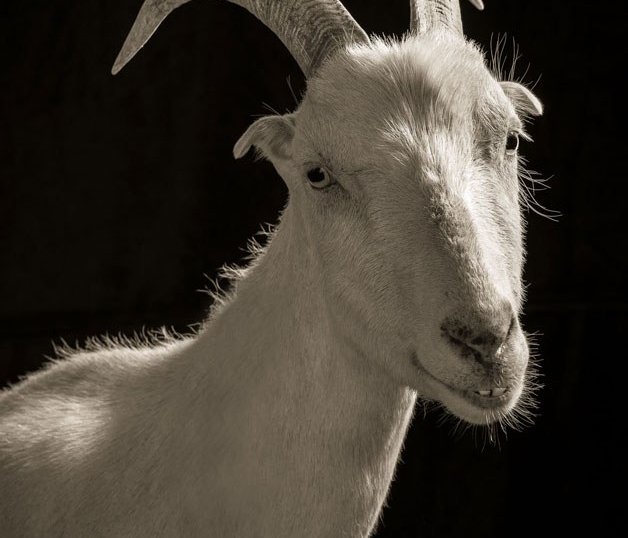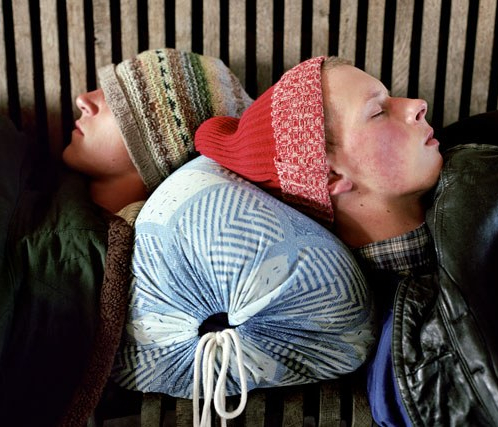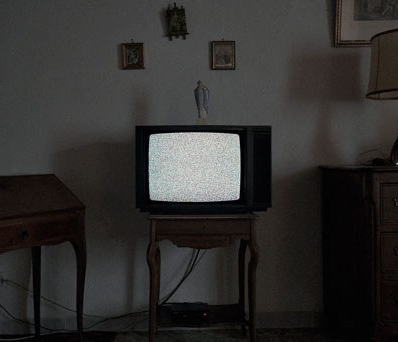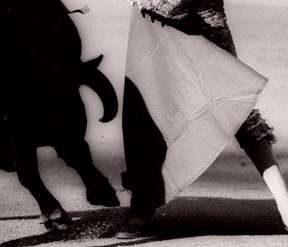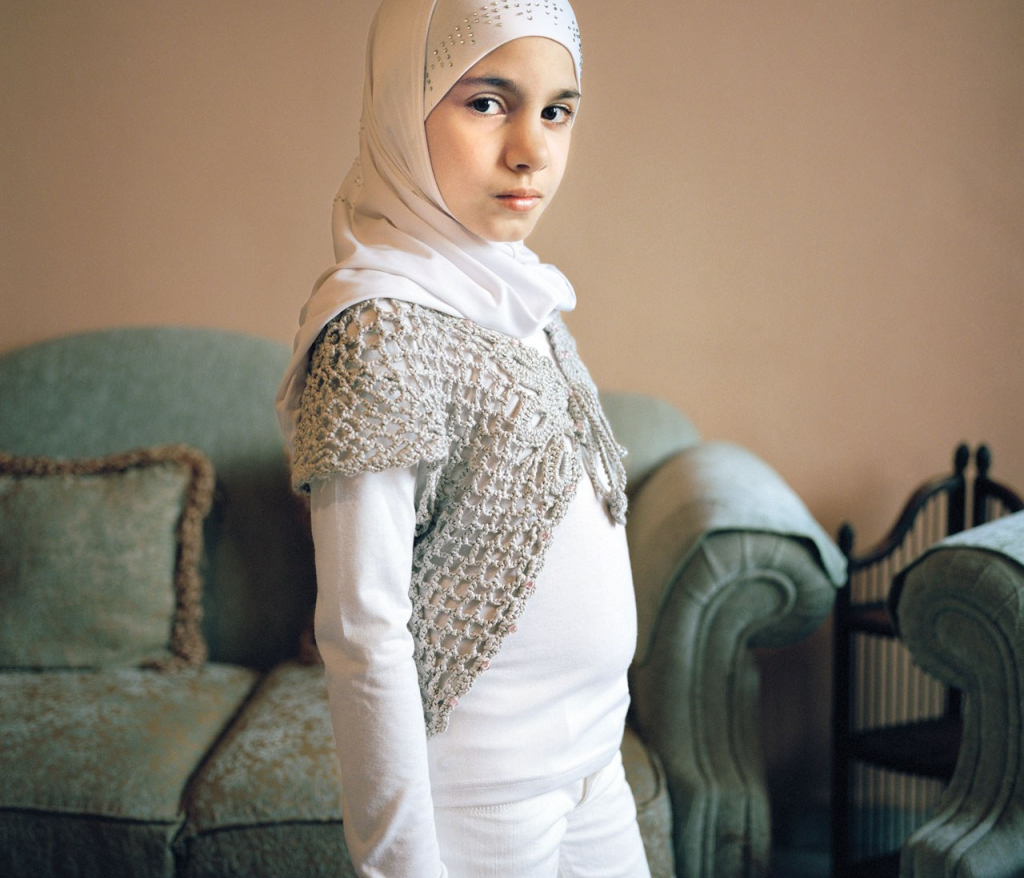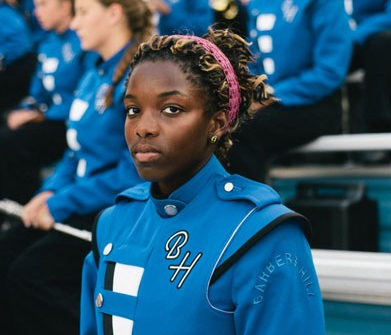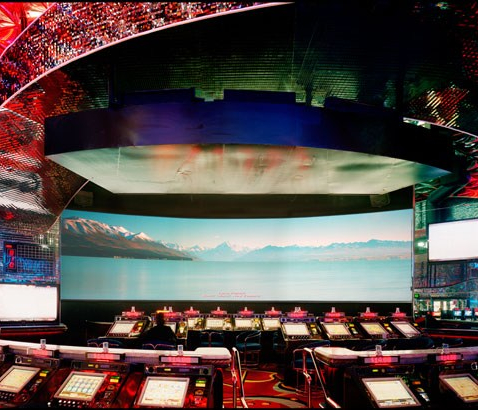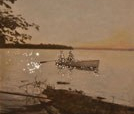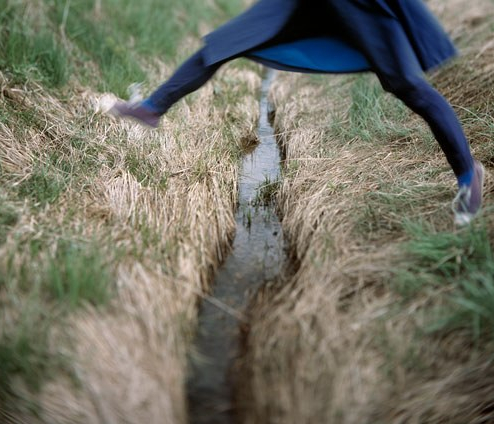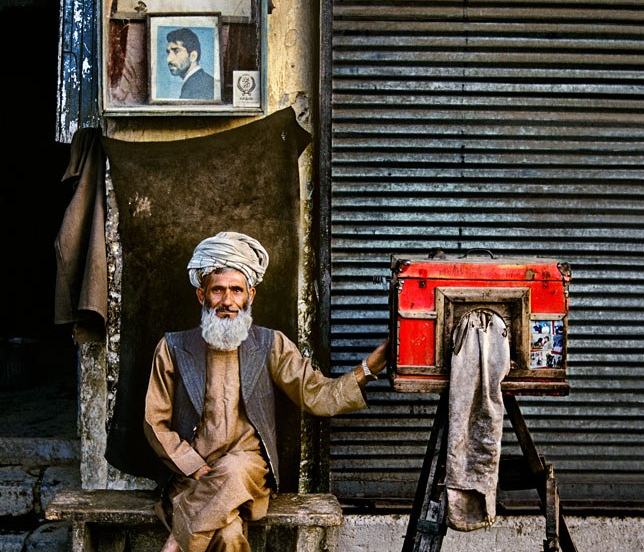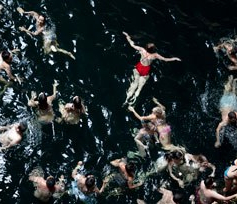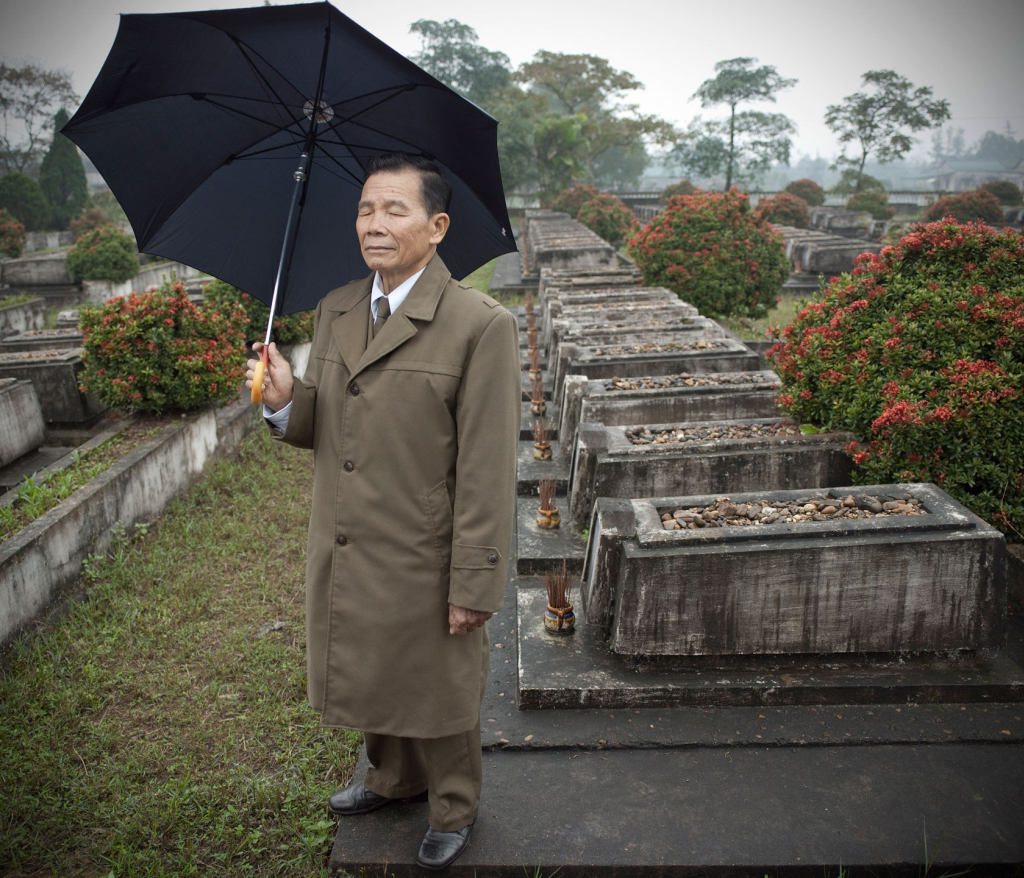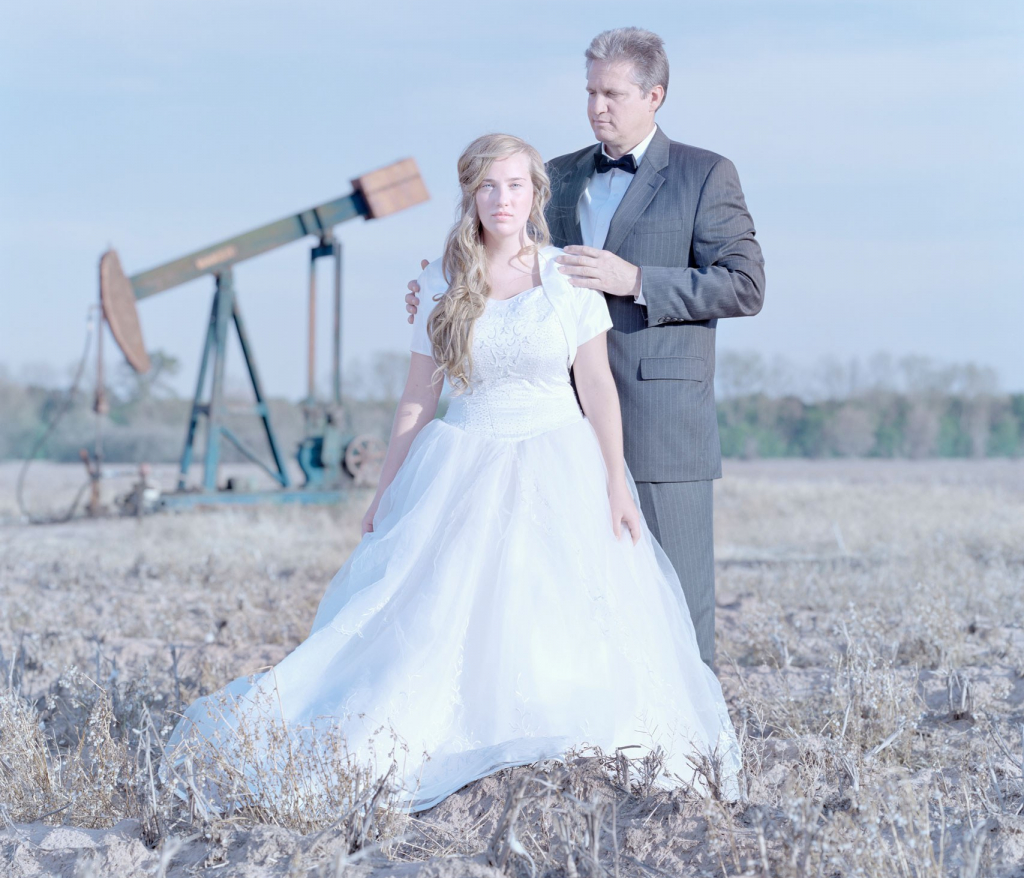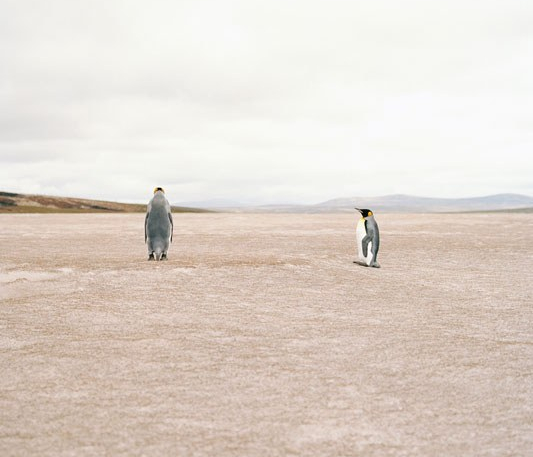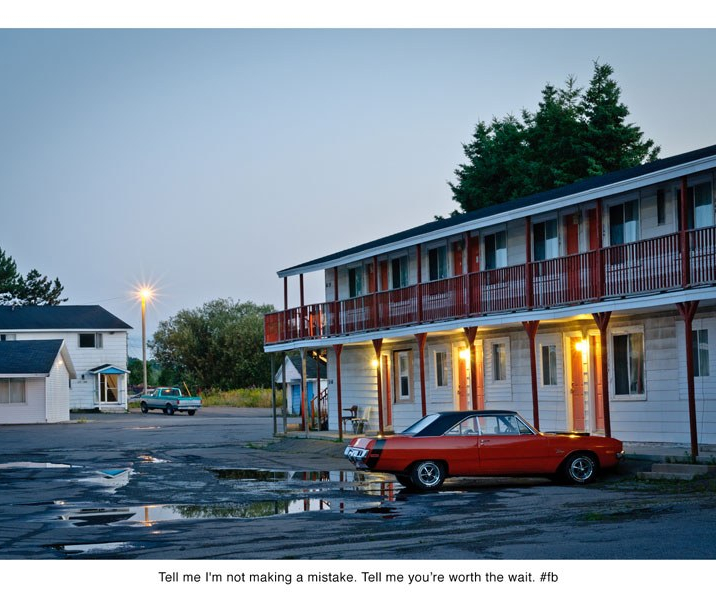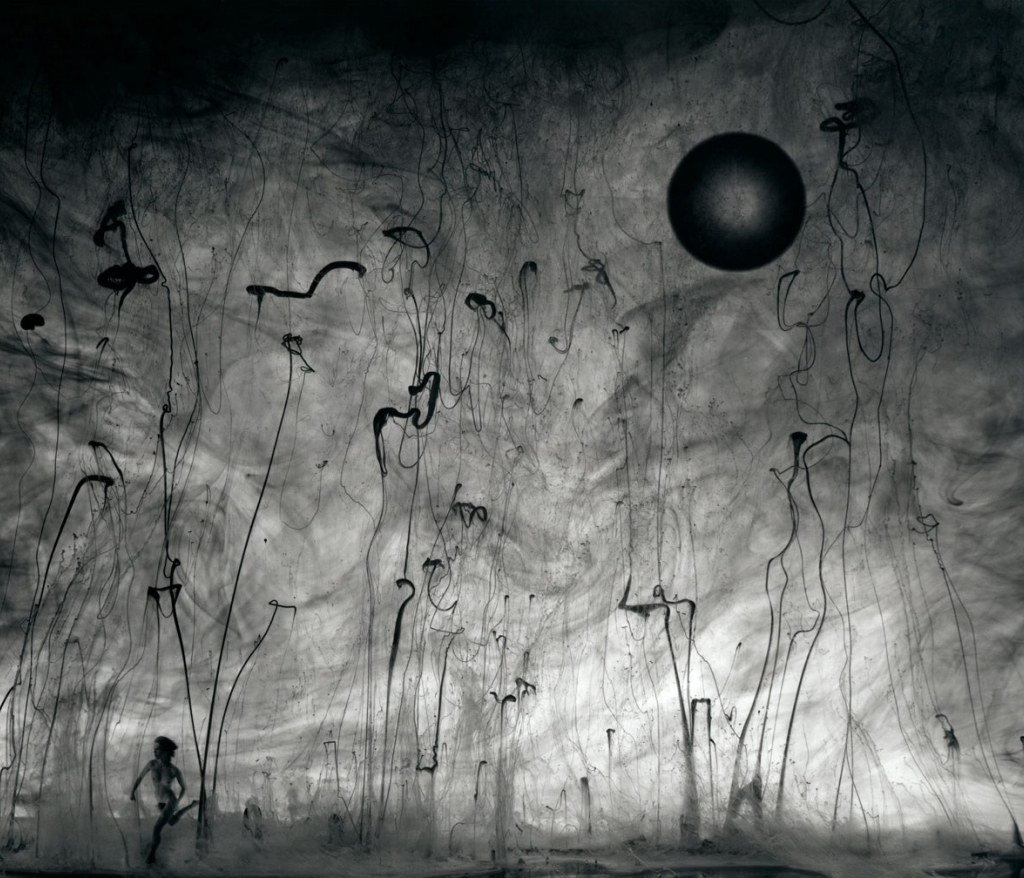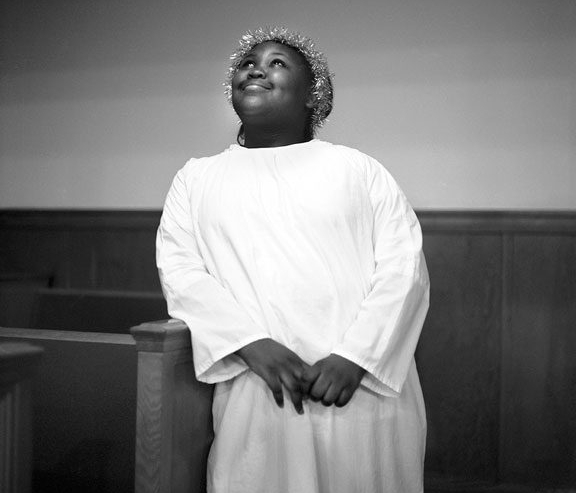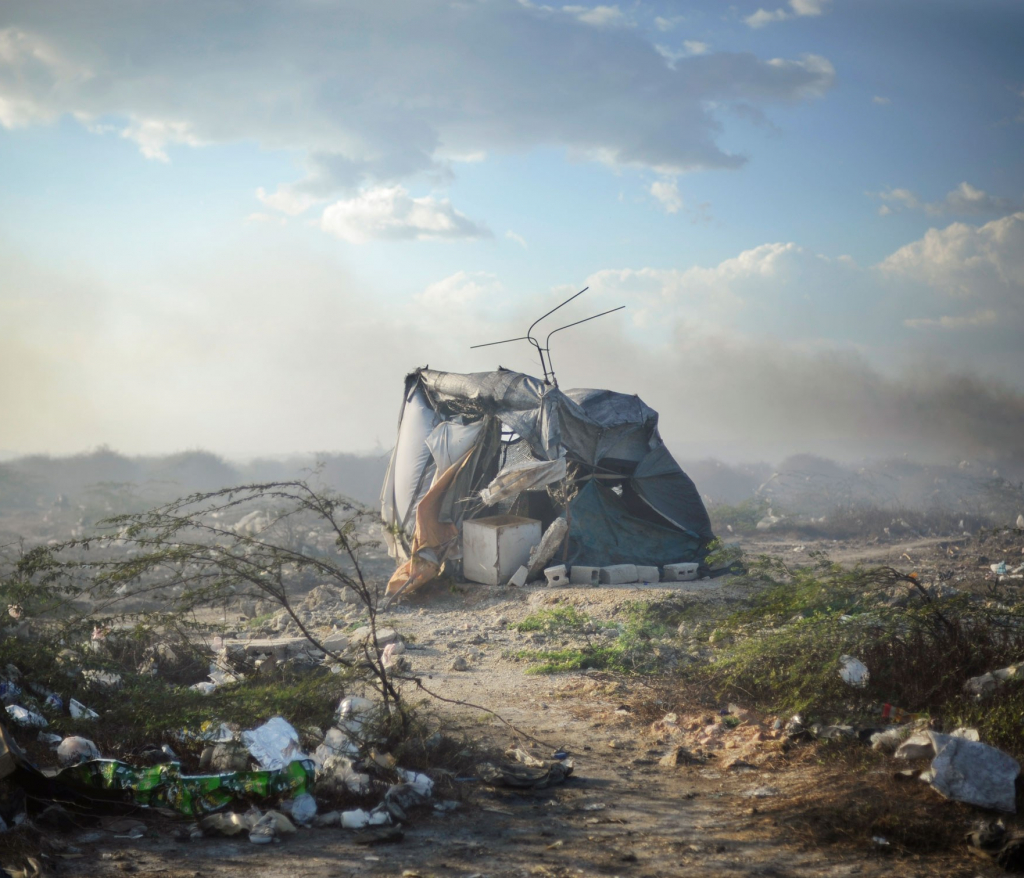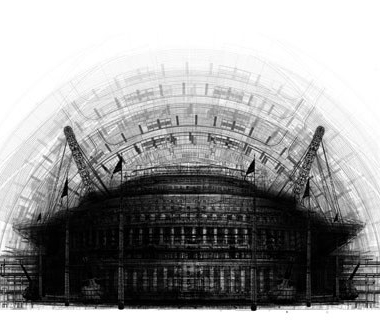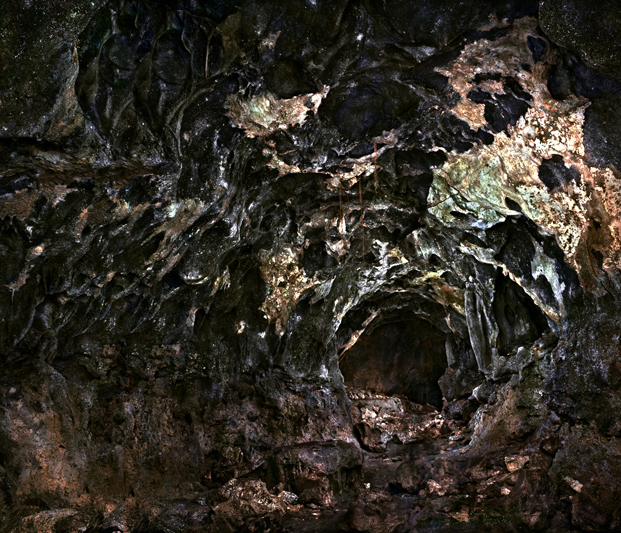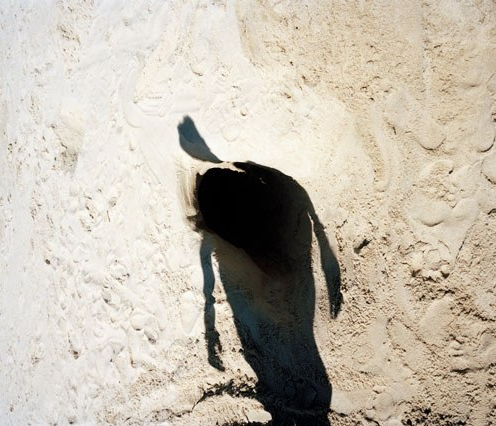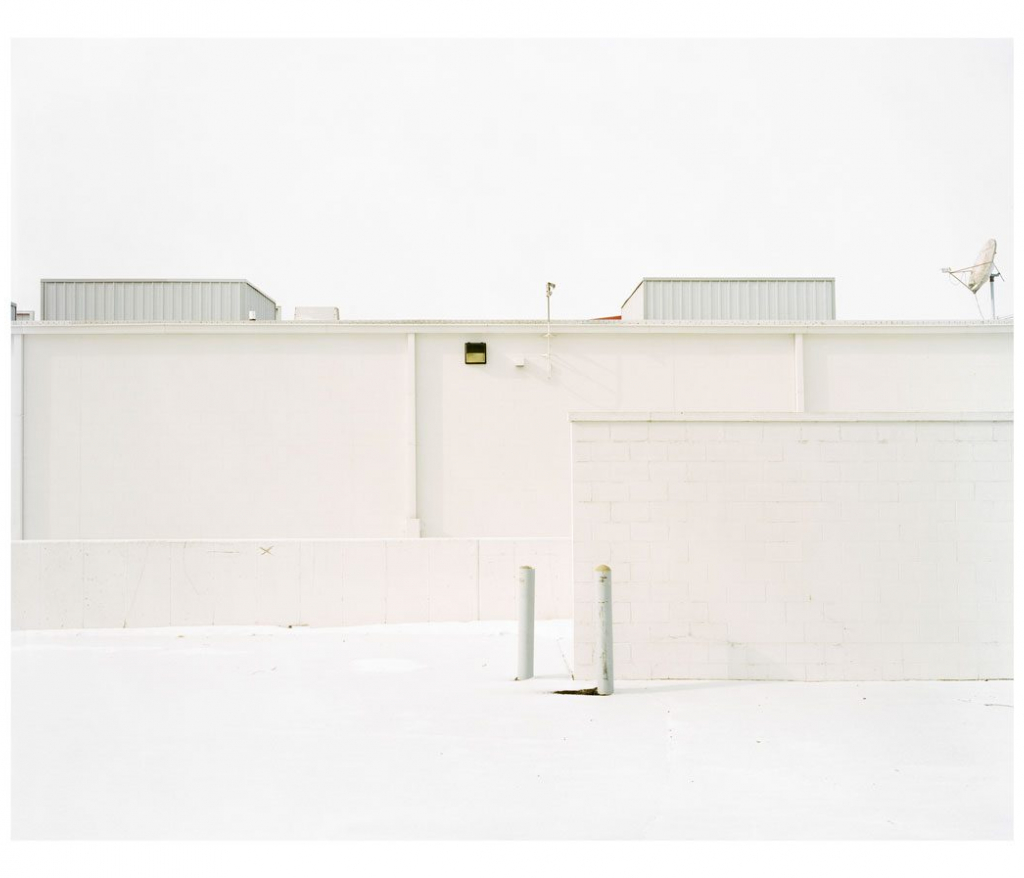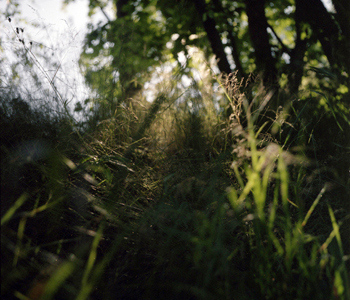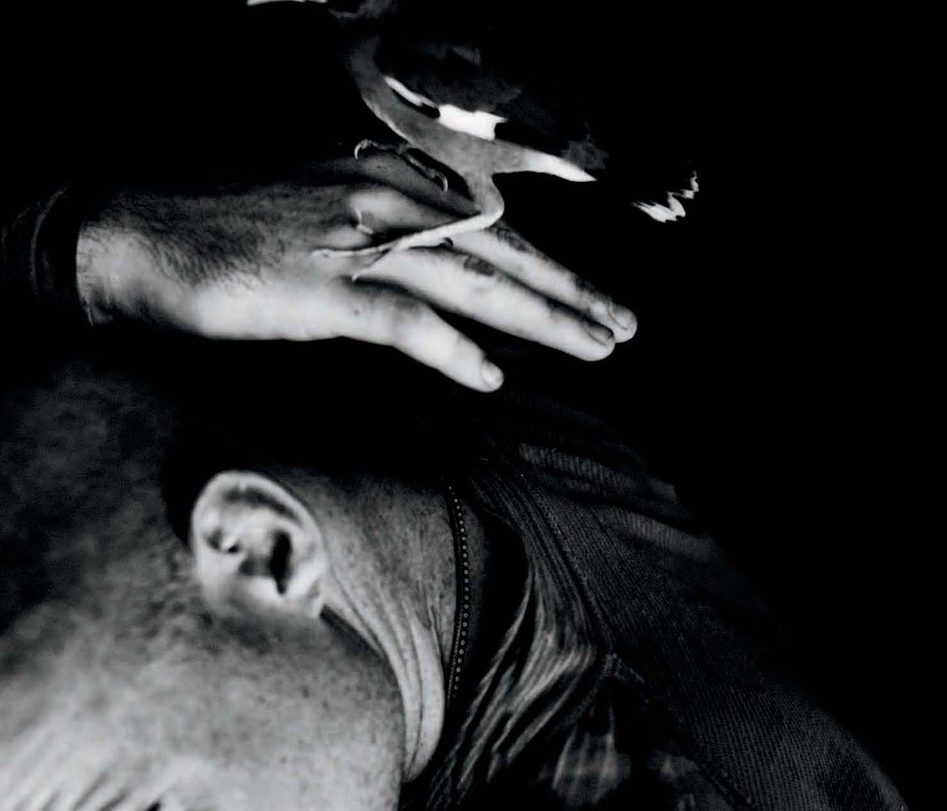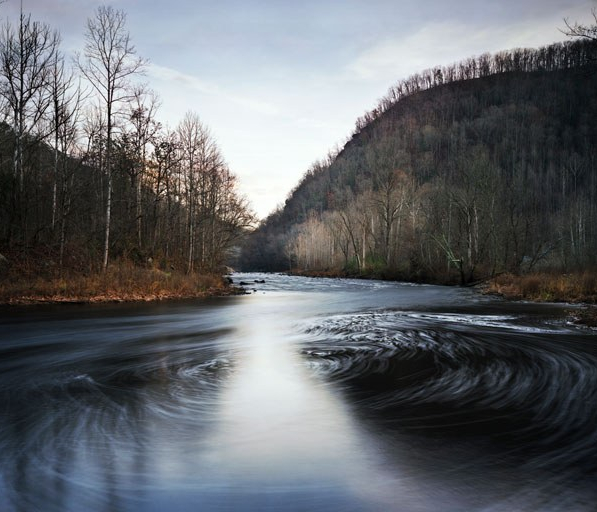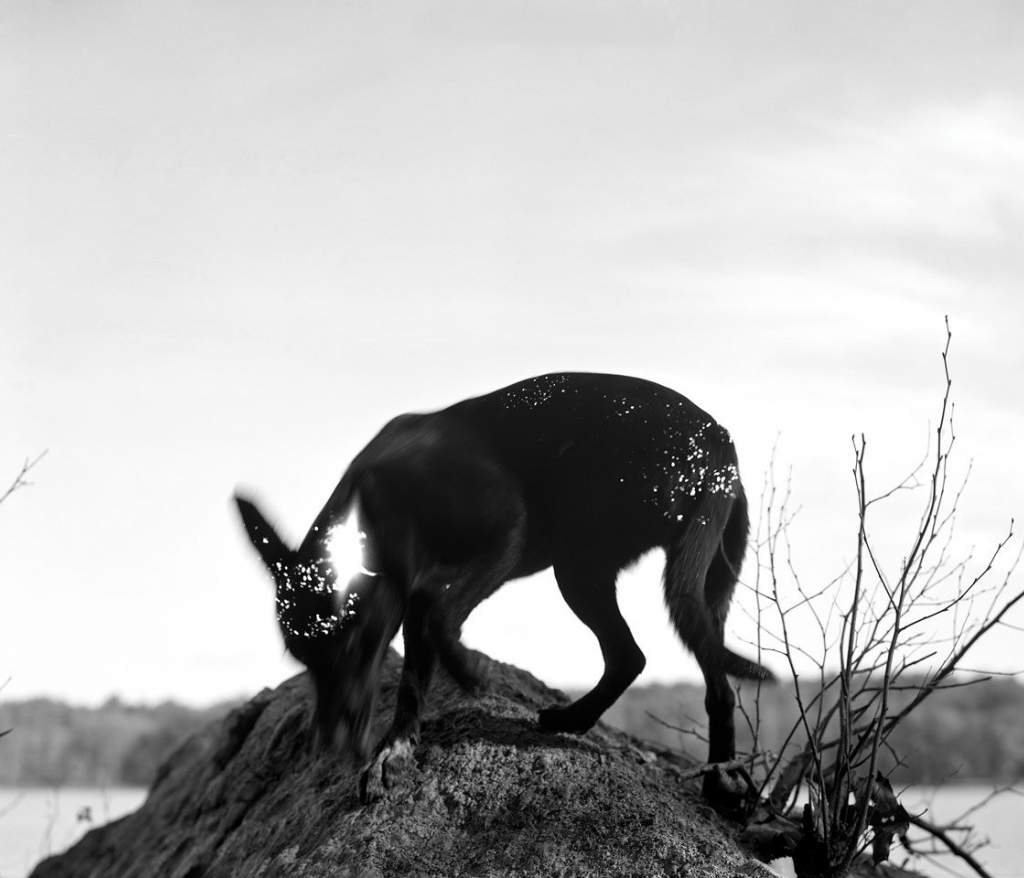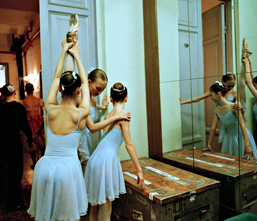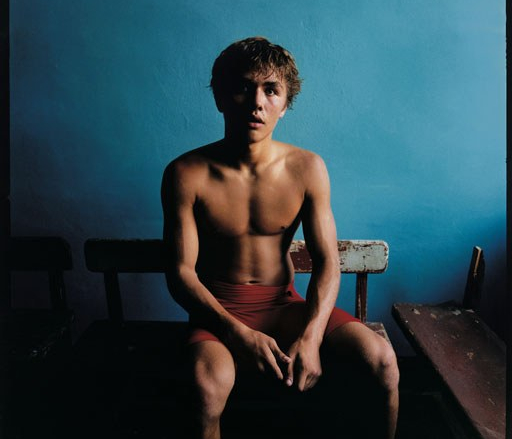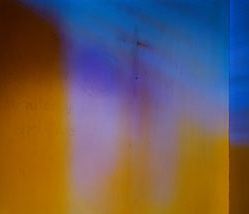Jeffrey Wolin
A Retrospective
Jeffrey Wolin
A Retrospective
Throughout his prolific career, Jeffrey Wolin has chosen to look directly at hard truths and difficult histories. His photographs are in sharp focus, often with stark, direct light; they speak about memory, but they are not romanticized. The images sometimes put you uncomfortably close to the subject. In Wolin’s portrait of holocaust survivor, Mieczyslaw Weinberg, the text pushes in and down and around the man. As the words float in the space around his head, they hum and vibrate and seem to be part of the atmosphere itself, as if these histories- stories with such gravity, take up all the air in the room.
Wolin’s photographic career began in the grimy realm of forensic police photography. Moving from that role into the roles of professor, artist, and storyteller, he carried with him a certain nerve, and courage to work candidly with difficult subjects. This forthright perspective permeates Wolin’s portraiture. But there is also a good deal of sensitivity evidenced in his relationships with the individuals pictured. When dealing with those who have survived the trauma of war, he is both delicate and direct in his presentation of the layered content of their particular lives. He opens a door for wounds and personal revelations to be received by a much wider audience with some kind of gravitas, doing credit to those who reveal their histories.
How do we sit with these stories? How, as individuals and society members, do we live with them, these experiences of growth and trauma and truth? Wolin’s work is, among many other things, about holding memory as a community. When things are rough, the impulse may be to want to ignore or to look away. Looking at the photographs from Pigeon Hill here in Bloomington is a chance to connect with the whole community of this city, and to see the subjects in the context of many others who persist amidst adversity.
Wolin prompts us to slow down and give our attention to neighbors and strangers, to grant respect to our common humanity.
Jeffrey A. Wolin is Ruth N. Halls Professor of Photography at Indiana University. Wolin’s series of portraits of Holocaust survivors, Written in Memory: Portraits of the Holocaust, was published by Chronicle Books, accompanying solo exhibitions of this work at the Art Institute of Chicago, International Center of Photography in New York, Chrysler Museum in Norfolk, VA and the Indianapolis Museum of Art. His solo exhibition of portraits of Vietnam War Veterans with their stories opened at the Museum of Contemporary Photography in Chicago in 2005 and will travel to other museums in the US and abroad beginning summer 2007. Umbrage Editions of NYC published the accompanying book, Inconvenient Stories: Vietnam War Veterans. His photographs are in the permanent collections of numerous museums including the Metropolitan Museum of Art, New York; Los Angeles County Museum of Art; San Francisco Museum of Modern Art; Houston Museum of Fine Arts; Art Institute of Chicago; Cleveland Museum of Art; New York Public Library; Whitney Museum of American Art, New York; Bibliotèque Nationale de France, Paris; and Museum of Modern Art, New York.
Wolin is the recipient of two fellowships from the National Endowment for the Arts and a Guggenheim Fellowship. He is represented by June Bateman Fine Art in New York and Catherine Edelman Gallery in Chicago.
Jeffrey Wolin
A Retrospective
Throughout his prolific career, Jeffrey Wolin has chosen to look directly at hard truths and difficult histories. His photographs are in sharp focus, often with stark, direct light; they speak about memory, but they are not romanticized. The images sometimes put you uncomfortably close to the subject. In Wolin’s portrait of holocaust survivor, Mieczyslaw Weinberg, the text pushes in and down and around the man. As the words float in the space around his head, they hum and vibrate and seem to be part of the atmosphere itself, as if these histories- stories with such gravity, take up all the air in the room.
Wolin’s photographic career began in the grimy realm of forensic police photography. Moving from that role into the roles of professor, artist, and storyteller, he carried with him a certain nerve, and courage to work candidly with difficult subjects. This forthright perspective permeates Wolin’s portraiture. But there is also a good deal of sensitivity evidenced in his relationships with the individuals pictured. When dealing with those who have survived the trauma of war, he is both delicate and direct in his presentation of the layered content of their particular lives. He opens a door for wounds and personal revelations to be received by a much wider audience with some kind of gravitas, doing credit to those who reveal their histories.
How do we sit with these stories? How, as individuals and society members, do we live with them, these experiences of growth and trauma and truth? Wolin’s work is, among many other things, about holding memory as a community. When things are rough, the impulse may be to want to ignore or to look away. Looking at the photographs from Pigeon Hill here in Bloomington is a chance to connect with the whole community of this city, and to see the subjects in the context of many others who persist amidst adversity.
Wolin prompts us to slow down and give our attention to neighbors and strangers, to grant respect to our common humanity.
Jeffrey A. Wolin is Ruth N. Halls Professor of Photography at Indiana University. Wolin’s series of portraits of Holocaust survivors, Written in Memory: Portraits of the Holocaust, was published by Chronicle Books, accompanying solo exhibitions of this work at the Art Institute of Chicago, International Center of Photography in New York, Chrysler Museum in Norfolk, VA and the Indianapolis Museum of Art. His solo exhibition of portraits of Vietnam War Veterans with their stories opened at the Museum of Contemporary Photography in Chicago in 2005 and will travel to other museums in the US and abroad beginning summer 2007. Umbrage Editions of NYC published the accompanying book, Inconvenient Stories: Vietnam War Veterans. His photographs are in the permanent collections of numerous museums including the Metropolitan Museum of Art, New York; Los Angeles County Museum of Art; San Francisco Museum of Modern Art; Houston Museum of Fine Arts; Art Institute of Chicago; Cleveland Museum of Art; New York Public Library; Whitney Museum of American Art, New York; Bibliotèque Nationale de France, Paris; and Museum of Modern Art, New York.
Wolin is the recipient of two fellowships from the National Endowment for the Arts and a Guggenheim Fellowship. He is represented by June Bateman Fine Art in New York and Catherine Edelman Gallery in Chicago.
